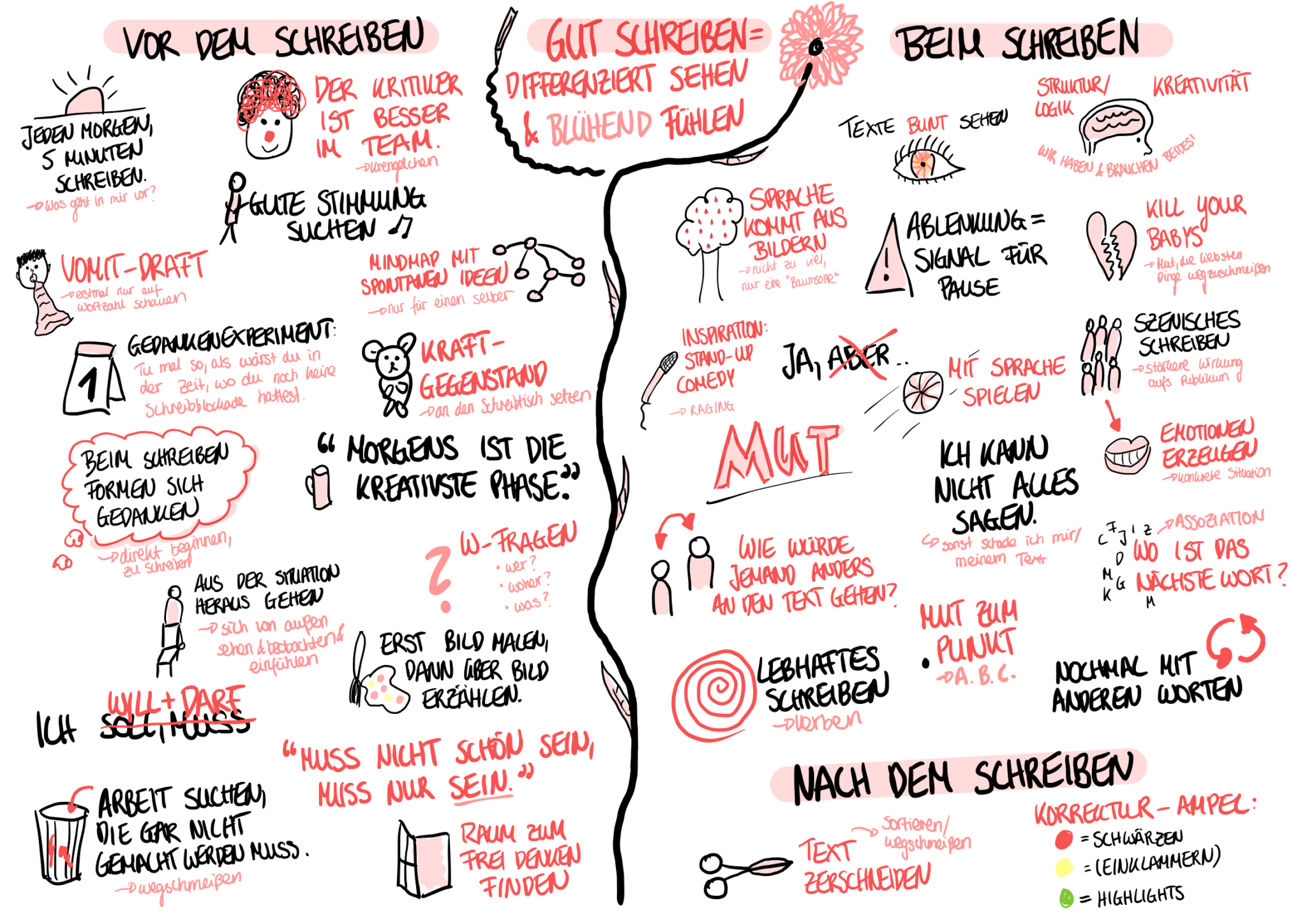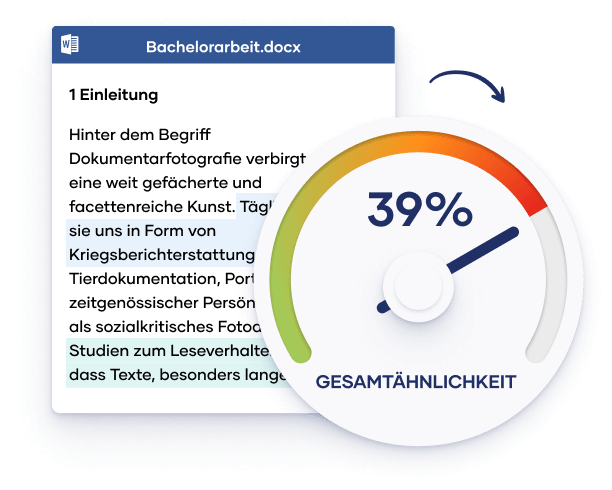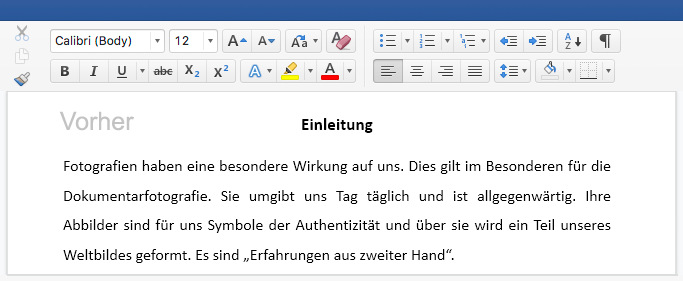

How to Write a Bachelor’s Thesis: A Step-by-Step Guide

The bachelor’s degree is an important milestone in your academic life, and creating a successful bachelor’s thesis is an essential part of this process.
Although it can be a challenge, with a structured approach and a clear timetable, a well-researched, informed, and organized bachelor’s thesis can be created.
In this article, we explain how to write a bachelor’s thesis.
11 Facts About Bachelor’s Theses
- The average length of a bachelor’s thesis is about 30-60 pages.
- Most bachelor’s theses are written in the field of economics.
- The average processing time for a bachelor’s thesis is 3-6 months.
- Typically, bachelor’s theses are supervised by a professor or lecturer.
- Most bachelor’s theses are still written and submitted on paper.
- A bachelor’s thesis is always written within the framework of a study program and is an important part of the degree completion.
- The topic selection for a bachelor’s thesis is usually free, as long as it falls within the field of study.
- Adherence to citation rules and source references is an important part of a bachelor’s thesis.
- Submission of a bachelor’s thesis is usually combined with an oral examination.
- The bachelor’s thesis is the first longer scientific work that a student writes during their studies and therefore represents an important hurdle.
- In 2021, approximately 260,000 students achieved their bachelor’s degree.
Scientific Formulations in Minutes Seconds
11 Tips for Academic Writing (Bachelor’s Theses)
- Start your bachelor’s thesis early to have enough time for research, writing, and revision.
- Choose an interesting and relevant topic that fits well with your field of study.
- Create a detailed work plan to keep track of your steps and deadlines.
- Use trustworthy and current sources to underpin your work.
- Write clearly and precisely, avoid using unnecessarily complicated sentences.
- Use a consistent citation style and pay attention to the correct source citation.
- Logically structure your bachelor’s thesis and ensure that the common thread is recognizable.
- Revise and polish your work multiple times to ensure that it is free from spelling and grammar errors.
- Have your work read by others and seek feedback to recognize areas for improvement.
- Consider publishing your bachelor’s thesis to make it accessible to others and to present your work.
- Have your text scientifically rephrased by Mimir. Sample input : Potatoes are healthy… ➔ Result : Potatoes are rich in vitamins and minerals and can contribute to a balanced diet.
The Process of Writing a Bachelor’s Thesis: Step by Step Guide
The writing process of a bachelor’s thesis is a challenge for many students. In this section, we give an overview of the most important steps and tips to successfully master the process.
- Determine the topic of the bachelor’s thesis and discuss it with the supervisor.
- Conduct comprehensive research and collect relevant sources.
- Create an outline and divide the topic into individual sections.
- Write the main part of the paper by processing and summarizing the insights gained from the research.
- Compose the concluding part, summarizing the main findings of the work and outlining possible further steps or implications.
- Proofread the work and check for formal requirements.
- Submit and defend the bachelor’s thesis.
Choosing a Topic: How to Find the Perfect Topic for Your Bachelor’s Thesis
The first step in creating a bachelor’s thesis is selecting the topic. It’s important that your topic is specific and answers a clear research question. If your topic is too general, it will be harder to achieve meaningful results.
Why is the topic important?
An interesting and relevant topic not only captivates your readers but also gives you the motivation to successfully complete the work.
The topic of your bachelor’s thesis is crucial for the success of your work.
A difficult or boring topic, on the other hand, can lead to you finding the writing process frustrating and ultimately not successfully completing the work. Therefore, it’s important to think carefully about which topic you choose for your bachelor’s thesis.
If you have difficulty finding a topic, you can turn to your supervisors and present your ideas to them.
| Social Media | How does the use of social media affect the educational and career decisions of young adults? |
| Climate Change | How has climate change altered the impact on ecological systems in Europe? |
| Religion | How has the role of religion in the modern world changed? |
Research & Study: The Right Way to the Perfect Bachelor’s Thesis
Once the topic is set, it’s time to collect the necessary information. This can be done by searching through libraries and databases, reading specialist literature, and interviewing experts. It’s important to carefully organize and document the collected information so that it’s easily accessible when writing the work.
It’s also important that your sources are current, as research and opinions in your subject area are constantly changing.
Possible Sources
- Academic Publications
- Professional Journals
- Reputable Websites (you should consult your supervisor beforehand)
Structure: Setup and Organization of the Bachelor Thesis
It is important to have a clear structure for your bachelor thesis. This should include an introduction, a main part, and a conclusion. Within the main part, you can divide your arguments into different sections. This helps you to structure your thought process and ensure a smooth and logical flow.
Introduction
- Summary of the research thesis
- Definition of the main terms
- Explanation of the research question and area of interest
- Conduct literature research
- Develop arguments and hypotheses
- Draw conclusions and results
- Cite sources
- Summary of the results
- Comparison of hypotheses and results
- Explanation of the implications of the results
- Recommendations for further research
Writing: Tips and Tricks for the Writing Process
After you have completed your research and established your structure, it is time to write.
It is important that you write your work in simple, academic German/English.
Avoid using too many technical terms and ensure that each sentence conveys a clear thought.
Compose a clear introduction that explains your topic and presents your argumentation. In the main part of your work, you should provide your arguments and examples to prove your thesis. Make sure that your arguments are logical and understandable.
- Write a simple and clear introduction
- Compose the main part of your work
- Ensure that each sentence conveys a clear thought
- Provide your arguments and examples to prove your thesis
- Ensure logical and understandable argumentation
- Avoid too many technical terms
- Avoid vague formulations
- Avoid subjective opinions
Tip: Let Mimir formulate your bullet point ( Example input : Running is great ➔ Result (1/3) : Running is a healthy and effective form of physical activity that can contribute to improving cardiovascular fitness, mobility, and mental health.)
Formatting: How to Properly Format Your Bachelor Thesis
It is important that you adhere to your university’s guidelines when formatting your bachelor thesis. Check the requirements for margins, line spacing, font size, and font type prescribed by your university.
It is also important to format your work consistently to achieve a professional look.
- Adhere to your university’s guidelines
- Check margins, line spacing, font size, and font type
- Consistently format your work
- Create a professional layout
Citing and Referencing: Rules for Citing and Referencing in the Bachelor Thesis
When referring to the ideas of other authors in your work, it is important to cite and reference them correctly. There are various citation styles you can use, but most universities use the Harvard or APA style.
Make sure to properly cite and reference all sources you refer to, to avoid plagiarism.
- Use the Harvard or APA style
- Cite and reference all sources you refer to
- Avoid plagiarism
Proofreading: Error Sources and Tips for a Flawless Bachelor Thesis
After you have written your bachelor thesis, it is important to thoroughly review it. Check the content for correct grammar, spelling, and structure. Also ensure that your arguments are clear and logical and that your statements are supported by your research.
It is important to proofread and edit your work several times. Make sure to correct all spelling and grammar errors so that your work looks professional.
- Read your work aloud to detect errors in grammar, sentence structure, and pronunciation.
- Use a dictionary or an online proofreading program to find errors in spelling and punctuation.
- Have someone else read your work and ask for feedback to gain additional perspectives and suggestions for improvement.
- Carefully review and revise your work to improve its quality and content. This can be done by adding examples, removing unnecessary information, or refining arguments.
Tip: Have your text checked by Mimir (Unscientific words, gender conformity, and more…)
Submission: How to Safely Submit and Defend Your Bachelor Thesis
Writing a bachelor thesis can be a challenging task, but if you follow the steps mentioned above, you will complete your work in a professional manner.
Don’t forget to adhere to the guidelines of your university.
Once you have reviewed and revised your bachelor’s thesis, it’s time to submit it. Make sure your work meets the requirements of your examiner and contains the correct information. If possible, have a friend or family member review it before you submit it.
Earning a bachelor’s degree is a great achievement, and creating a successful bachelor’s thesis is an essential part of this process. Remember, choosing a topic, conducting research, and writing a bachelor’s thesis can be a laborious process. However, if you have a clear schedule and follow the steps mentioned above, you can create a well-researched, informed, and organized bachelor’s thesis.
And last but not least: Congratulations!
Two Practical Examples of the Process
To better understand the steps and tips mentioned above, here are two examples from different academic areas:
- A psychology student writes a bachelor’s thesis on the effects of social media on the mental health of adolescents. She chooses this topic because it combines her personal interest and her expertise in psychology. She gathers information by reading textbooks and conducting interviews with adolescents and experts. She creates an outline consisting of an introduction, three main chapters, and a conclusion, and writes her paper accordingly. She makes sure to use quotes and references and to adhere to the APA formatting requirements. Finally, she carefully corrects her work and has it read by her teacher and a fellow student for improvement suggestions.
- A computer science student writes a bachelor’s thesis on the development of a new algorithm for machine learning. He chooses this topic because it reflects his expertise in computer science and his curiosity about new technologies. He gathers information by reading academic articles and communicating with other experts in his field. He creates an outline consisting of an introduction, three main chapters, a section on results, and a conclusion, and writes his paper accordingly. He makes sure to use citations and references and to adhere to the IEEE formatting requirements. Finally, he carefully corrects his work and has it read by his supervisor and a reviewer from a professional journal for improvement suggestions.
Frequently Asked Questions
How do you start writing a bachelor’s thesis.
Before you start writing your bachelor’s thesis, you should first plan the topic and structure of the paper. This also includes researching relevant sources and creating an outline. Once you have an overview of the structure of the paper, you can start writing.
How quickly can you write a bachelor’s thesis?
The duration of writing a bachelor’s thesis can vary greatly and depends on various factors, such as the complexity of the topic, the size of the paper, and the time spent on research. However, you should generally plan several weeks or even months for the actual writing of a bachelor’s thesis.
How do you properly write a bachelor’s thesis?
1. Start by selecting an interesting and relevant topic for your bachelor’s thesis. 2. Create a clear and detailed research plan that outlines the goals, methods, and timeline for your work. 3. Gather comprehensive and reliable sources to support your arguments and substantiate your theses. 4. Compose a clear and structured introduction that highlights the topic and significance of your work. 5. Develop your arguments in the main chapters of your bachelor’s thesis and use examples and evidence to support your statements. 6. Conclude your findings and conclusion in a conclusive and detailed section that summarizes the significance and implications of your work. 7. Thoroughly correct and revise your bachelor’s thesis to ensure it is logical, coherent, and error-free.
Leave a Reply Cancel reply
Your email address will not be published. Required fields are marked *
Post Comment
Studienstrategie.de » Schreiben » Bachelorarbeit schreiben: 13 Tipps für die perfekte Thesis 📝 (Einleitung, Methodik, Aufbau)

Bachelorarbeit schreiben: 13 Tipps für die perfekte Thesis 📝 (Einleitung, Methodik, Aufbau)
Wie schreibe ich meine Bachelorarbeit / Thesis schnell und gut?
Gut das du fragst: Hier kommen 13 Top-Tipps für das effektive Schreiben deiner Bachelorarbeit vom 11-fachen Bestsellerautor & Lernexperten Dr. Martin Krengel.

Bachelorarbeit schreiben: Tipps zur Gliederung / Einleitung / Aufbau deiner Bachelor Thesis
Der perfekte Schreibprozess: (Inhalt dieses Artikels | Lesezeit: 9 Min)
1. Planung deiner Bachelorarbeit
2. Thema & Forschungsfrage
- 3. Betreuer*in finden & Bachelorarbeit anmelden
- 4. Methodik & wissenschaftliches Arbeiten
5. Richtig Recherchieren
6. Aufbau und Gliederung
7. Zeitmanagement beim Schreiben
- 8. Motivation + Schreibflow
9. Schreib-Formulierungs-Tipps vom Profi
10. Fiese Formalitäten
11. Feinschliff: Lektorat und Korrektur
12. Plagiatsprüfung
- 13. Druck, Abgabe & Verteidigung
- 14. Fertig & Feiern!
🚨Schreibblockaden? Deadline rast auf dich zu? Hier ist dein SOS-Crashkurs
13 Schritte zur Bachelor-Arbeit:

Hier bekommst du die besten Schreibtipps und Techniken!
Bachelorarbeit schreiben: Tipp #1
- 1. Planung und Timing von Bachelorarbeiten
Wie behalte ich den Überblick?
Bei so einer großen Arbeit ist das Zeitmanagement total wichtig, also solltest du dir als allererstes einen Plan machen. Grob kann man den Zeitplanung deiner Bachelorarbeit in 4 Phasen aufteilen: Ideenfindungs-Phase, Recherche-Phase, Schreib-Phase und Feinschliff-Phase. Unterschätz nicht, wie lange du für die einzelnen Phasen brauchst und plane lieber mehr, als zu wenig Zeit ein.
Zeiteinteilung : Auf den Mix kommt´s an.

15 % Recherche & Gliederung
30 % Schreiben
10 % Puffer (Du wirst mir danken)
15% Feinschliff
15% Puffer für ungeplante Hürden und Hindernisse (Heartbreak, Katze stirbt, etc.)
Achtung: Im Normalfall nimmt die Bachelorarbeit 2 bis 3 Mal so viel Zeit in Anspruch wie gewünscht! Deshalb solltest du dir frühzeitig Gedanken machen und Ideen notieren. Zeitig starten und Puffer einplanen sind echte Arschretter !
Plane mindestens einen Puffermonat ein und setze dir ca. 2 – 8 Wochen vor Abgabe eine Deadline, um schneller anzufangen. Sicher wird nämlich die ein oder andere Schreibblockade auftauchen.
Mein Geheimtrick: Ich plane jedes Schreibprojekt so, dass ich mindestens eine Woche früher fertig bin. So kann ich mich 2-3 Tage ausruhen und sehe dann 5 x soviele Fehler im letzten Korrekturlesen, als wenn ich direkt im Anschluss abgeben würde.
Themenfindung und ein klarer roter Faden sind 50% der Schreibarbeit! Hier würde ich mir in jedem Fall ein professionelles Schreibtraining zu buchen – Simone aus Berlin

Dr. Martin Krengel ist Motivationspsychologe, Zeitmanagement-Experte und Unternehmer. Der Universitätsdozent und Vortragsredner absolvierte sowohl sein Abi als auch zwei sehr verschiedene Studiengänge (Psychologie + Wirtschaft) „mit Auszeichnung“ und gründete die Onlinekurs-Akademie „Studienstrategie.de“. Er verfasste 11 Bücher, darunter 4 Bestseller, die in 5 Sprachen erhältlich sind.
Bachelorarbeit schreiben: Tipp #2
- 2. Thema finden & Forschungsfrage formulieren
Wie beginne ich? Wie wähle ich mein Thema aus?
Wichtig: Beginne jetzt mit einer Longlist, in der du alle Ideen notierst. Nachdem du einige Ideen zusammen hast, wähle aus:
- Das Thema sollte dich interessieren . Strategische Themenauswahl („Was nützt meiner späteren Karriere?“) ist falscher Ehrgeiz und bremst letztendlich deine Motivation. Gibt es ein Thema, das dich schon seit Anfang des Studiums reizt? Jetzt ist die Gelegenheit!
- Genug Material: Du solltest genug Literatur und Forschungsberichte zu deinem Thema finden. Andernfalls wird deine Bachelorarbeit den akademischen Ansprüchen wohl nicht genügen. Halte aber auch einmal nach Nischenthemen Ausschau, vielleicht tun sich da Überraschungen auf!
- Deine Bachelorthesis soll eine Forschungslücke füllen, das heißt, es muss etwas Neues zu bereits Bestehendem gesagt werden, auch wenn es noch so klein ist. Du kannst nicht einfach dasselbe Thema wie jemand anders wählen.
Mit den genannten Kriterien kannst du die Themenauswahl bereits gut vorsortieren und eine Shortlist mit 2-3 Themen erstellen.
Wenn du dich dann immer noch nicht für ein Thema entscheiden kannst, helfen folgende weitere Fragen:
- Hast du schon praktischen Bezug zu einem der Themen, durch Praxissemester oder Praktika?
- Könnte man das Thema in einem anschließenden Masterstudium und einer Masterarbeit noch vertiefen?
- Falls du eine empirische Arbeit schreibst: Für welches Thema findest du genug Probanden oder Teilnehmer
Die Fragestellung für die Bachelorarbeit eingrenzen
Suche nach einem Aspekt deines Themas , der dich reizt. Versuche eine eigene, neue Position dazu zu entwickeln. Kein Professor mag wiedergekäute Zusammenfassungen anderer Publikationen.
Das Entscheidende ist, was genau du mit deiner Arbeit herausfinden willst. Eine zu enge Fragestellung wie „Untersuchung eines einzigen Hochzeitsrituals eines papuaneuguineischen Kleinstammes in der nachfolgend vierten Generation des aktuellen Ersatzhäuptlings und der Einfluss von Instagram“ kann aufgrund von magerer Quellenlage ebenso problematisch sein wie eine zu weite ( „Hochzeit in Papua-Neuguinea“ ), die ein Fass ohne Boden wäre.
Der goldene Mittelweg wäre in etwa: „Die historische Entwicklung der Hochzeitsrituale in Papua-Neuguinea unter dem Einfluss der Globalisierung von 1905 bis 1950.
Bonus-Tipp: Zeit und Stress beim Schreiben sparen!
Viele verzweifeln bei der Themenfindung und eiern um den Roten Faden herum. Sie schieben dann wichtige Schreibarbeiten auf oder labern und kommen nicht zum Punkt. Das kostet wertvolle Zeit und Punkte!
Ich empfehle dir dringend das Schreibtraining „ Schreiben & Struktur 3.0 „.
Es zeigt dir typische Stolperstellen und Wege raus aus der Schreibblockade. Du wirst erfahrungsgemäß mehrere Wochen Arbeit sparen!
So kommst du schneller in den Job und kannst gut Geld verdienen – oder dir eine längere Auszeit gönnen.
Schau es dir mal kurz unverbindlich an:
Schreiben & Stuktur 3.0:
Bachelorarbeit schreiben: Tipp #3
Wer hilft mir, meine Bachelorarbeit zu schreiben?
Thema und Forschungsfrage stehen – jetzt fehlt nur noch jemand, der sich das Ganze auch reinzieht! Deine Betreuungsperson sollte sich mit dem Feld, auf dem du dich bewegst, auskennen, damit sie dir eine Hilfe sein kann. Stell dein Thema in der Sprechstunde vor und lass dir konstruktives Feedback geben.
Manche Betreuer verlangen ein kurzes Exposé : Darin skizzierst du einen groben Aufbau, also eine vorläufige Version deiner Gliederung. Wenn du jetzt schon seufzt – halt! Der Hirnschmalz, den du da reinsteckst, ist nicht verloren! Denn es ist nicht nur für den Dozenten, sondern auch für dich sehr wertvoll, weil du dich bei der Recherche schon daran orientieren kannst und nicht einfach in der Flut an Quellen untergehst.
Anmelden nicht vergessen! Wenn du einen vertrauensvollen Betreuer gefunden hast, musst du die Bachelorarbeit auch noch gemeinsam mit ihm anmelden – natürlich kannst du schon vorher anfangen und die Anmeldung erst während der Arbeit durchführen, in der Regel tickt nämlich ab dann die Zeit: Du bekommst vom Prüfungsamt eine Deadline gesetzt. Falls du dir nicht sicher bist, wie lange du Zeit hast, sieh in der Prüfungsordnung nach oder frag deine Betreuungsperson.
Bachelorarbeit schreiben: Tipp #4
Was bedeutet Methodik?
Jetzt musst du eine passende Methodik für deine Bachelorarbeit wählen. Natürlich kommt das auf dein Fach und Thema an. Es macht wenig Sinn, bei einer Anglistik-Bachelorarbeit mit dem Titel „Hat Shakespeare seine berühmtesten Stücke wirklich selbst geschrieben?“ eine Umfrage in der Fußgängerzone deines Heimatkaffs zu machen. Aber generell gibt es einige Standardmethoden , sprich dich am besten auch hier mit deiner Betreuungsperson ab.
Natürlich kannst du dir auch Bachelorarbeiten deines Studiengangs ansehen (oft in den Bibliotheken zu finden) und sammeln, welche Methoden dort gewählt wurden. Du musst deine Wahl auch am Anfang der Arbeit begründen, also mach dir deine Vorgehensweise bewusst.
Es gibt zum Beispiel:
- Interview mit Experten zum Thema
- Literaturarbeiten
- Qualitative Inhaltsanalysen
Wissenschaftliches Arbeiten auf den Punkt:
Wissenschaft ist objektiv, kritisch und nachvollziehbar . Es ist wahnsinnig wichtig, dass korrekt zitiert wird, damit keiner auf die Idee kommt, du hättest geklaut. Und Formalitäten müssen streng eingehalten werden – Rechtschreib- und Grammatikfehler, Chaos in der Literaturliste oder im Layout können deine Note richtig runterziehen. Dazu aber später mehr.
Wissenschaft ist sehr traditionell, sie baut immer auf schon gewonnenen Erkenntnissen. Ziel ist immer eine neue Erkenntnis in dieser Linie, eine neue Kategorisierung oder Perspektive auf das, was schon zu dem Thema erforscht wurde.
Du musst kurz zusammenfassen, was schon zu deinem Thema gesagt wurde – und dann deine eigene Meinung, deine eigene, neue Fragestellung dazu entwickeln. Das folgt immer mit sauberer Quellenangaben und wissenschaftlicher Zitierweise – sonst bekommst du Plagiats-Probleme.

🚀 Klicke auf das Bild, um deine Schreibblockaden für immer aufzulösen! 👆

Bachelorarbeit schreiben: Tipp #5
- 5. Richtig recherchieren
Erstmal brauchst du einen Überblick…
Es macht wenig Sinn, 2489 Bücher und Texte im Internet zu sammeln und diese dann ganz zu lesen. Spätestens nach der Hälfte wird dir auffallen, dass du keine Zeit mehr und erst Recht keine Lust mehr zum Weiterlesen hast. Besser, du machst dir bei einer ersten Google- Recherche ein Bild davon, was im Zusammenhang mit deinem Thema wichtig ist.
Probier verschiedene Suchbegriffe aus und lies oberflächlich Texte im Internet. Blättere durch Inhaltsverzeichnisse und setze für später Lesezeichen. Erst dann startest du mit der Sammlung von Adressen und dem Vormerken in der Bibliothek.
Ganz wichtig: Liste deine Quellen von Anfang an sauber auf, um am Ende deiner Bachelorarbeit kein Kuddelmuddel mit deinem Literaturverzeichnis zu haben oder sogar aufgrund einer unauffindbaren Quelle später des Plagiats bezichtigt zu werden.
Die richtigen Quellen
Nutze Google Scholar und andere wissenschaftliche Suchmaschinen; dort hast du direkten Zugriff auf viele Texte oder siehst, wer wen zitiert . An den meisten Hochschulen gibt es außerdem VPN-Zugänge für Springer Link, JSTOR und ähnliche kostenlose Literaturquellen im Internet . Dadurch kannst du dir viel Rennerei in die Bibliothek sparen – obwohl es auch wichtig ist, „echte“ Bücher einzubeziehen, vor allem bei Abschlussarbeiten. Nutze dafür die Katalogsuche der Bibliotheken in deiner Nähe. Wenn du mal ein Buch nicht findest, such in anderen Bibliotheken und lass es dir notfalls per Fernleihe zukommen.
Auch hier ist wichtig : Lies quer oder nur einzelne Passagen eines Buches. Schnell bleibt man an einem Buch „hängen“ und liest es ganz, obwohl nur eine kleine Passage für die Bachelor Thesis nützlich ist.
Manchmal kann es auch gut sein, nach fremdsprachigen Publikationen zu suchen, wenn in anderen Ländern mehr Forschung zum Thema betrieben wird – vorausgesetzt natürlich, du verstehst die jeweilige Sprache!
Aber was genau ist nützlich?
Wenn deine Recherche fortschreitet, orientiere dich an folgenden Fragen: Gibt es kontroverse Aspekte deines Themas, zu denen sich die Forscher gegenseitig batteln? Gibt es ganz aktuelle Publikationen dazu? Und gibt es Standardtexte, die du auf gar keinen Fall vernachlässigen darfst?
Wenn du eine beachtliche Literaturliste zusammen hast, bring Struktur in deine Quellen: Sortiere sie nach Relevanz für dein Thema und lies die wichtigsten zuerst. Mach dir zu jedem Text einen Überblick und notiere das Wichtigste , damit du hinterher nicht den roten Faden verlierst. Sortiere aus, wenn du merkst, dass Texte zu weit von deinem Thema wegführen.
Merke : Ein guter Überblick ist das A und O. Mach dir bewusst, was du wissen musst, und wie du an dieses Wissen kommst. Leider hängen 99% zu sehr im Detail fest und kommen kaum richtig durch durch ihre Texte. Im Kurs „Lesetubo 5.0“ lernst du, die wichtigsten Kernaussagen eines kompletten Buches in nur einer Stunde zu erfassen!
Aufbau Bachelorarbeit: Tipp #6
- 6. Aufbau und Gliederung deiner Bachelorarbeit
Wie baue ich eine Bachelorarbeit sinnvoll auf?
Der Aufbau einer Bachelorarbeit ist eigentlich simpel. Wenig kreativ, dafür aber sehr klar – beim wissenschaftlichen Arbeiten gibt es eben Vorgaben. Im Prinzip ist es immer Folgendes:
- Inhaltsverzeichnis
- Hauptteil/Analyse
- Schluss mit Fazit/Ausblick
- Literaturverzeichnis
- Anhang, falls du einen brauchst
Sei dir bewusst, dass du akademisch schreibst und du deine Bachelorarbeit nicht mit einer selbst verzierten Titelseite mit Strass-Steinchen abgeben solltest. Sie sollte neutral sein und Folgendes enthalten: Titel der Arbeit, dein Name und Eckdaten (Adresse, Kontakt und Matrikelnummer) und Infos zum Seminar (Uni, Titel, Semester, Dozent). Der Hauptteil sollte natürlich den größten Prozentsatz mit etwa 80 Prozent haben.
Sprich aber, bevor du losschreibst, auch deine Gliederung mit deinem Betreuuer ab, falls er Extra-Wünsche hat!
Nun kommen wir zu den einzelnen Teilen:
Einleitung der Bachelorarbeit:
Sie soll Interesse wecken. Erklär, warum du dein Thema gewählt hast und welche Erkenntnis du vermitteln willst – aber verrate nicht, dass du über das Paarungsverhalten von Katzen schreibst, weil du deiner toten Mieze mit dieser Arbeit eine letzte Ehre erweisen wolltest. Persönliches oder Emotionales ist nicht erwünscht. Dann erklärst du deine Fragestellung, deine wissenschaftlichen Methoden. Geh nicht zu sehr in die Tiefe oder ins Detail, schließlich hat man das Inhaltsverzeichnis ja auch vor sich.
Hauptteil der Bachelorarbeit:
Hier findest du Antworten auf deine Fragestellung . Es geht um vorherige wissenschaftliche Arbeiten, den Diskurs deines Themas, wichtigste Theorien und gute Argumente. Du kannst die Gliederung selbst wählen, aber versuch es einfach zu halten und statt 20 Untergliederungs-Ebenen eher 3 zu verwenden. Der rote Faden und dein Kernthema sollten immer sichtbar sein. Und remember: Dein Betreuer ist auch keine Null auf dem Feld – du schreibst nicht für einen absoluten Laien, ein Basiswissen ist bei deinem Leser schon vorhanden und du musst das Rad nicht neu erfinden.
Schlussteil der Bachelorarbeit:
Hier steht das Fazit, in dem du knapp deine wichtigsten Erkenntnisse zusammenschreibst. Pack hier keine neuen Infos mehr rein, gib eher einen kleinen Ausblick in die Zukunft des Themas!

Die besten Schreibtechniken für deine Bachelorarbeit (SOS-Kurs, sofort startklar)

Zeitplanung Bachelorarbeit: Tipp #7
- 7. Mittendrin: Zeitmanagement beim Schreiben
Wie schreibe ich meine Bachelorarbeit schneller?
Jetzt hast du schon so viel Vorarbeit geleistet – kann ja nicht so schwer sein, das Ganze noch runterzuschreiben, denkst du, und beginnst zu prokrastinieren …
… aber je näher der Abgabetermin, desto größer die Bauchschmerzen! Du brauchst also Methoden, wie du das Bachelorarbeit Schreiben in den Griff kriegst – keine Angst!
Gutes Schreiben = gutes Zeitmanagement
First Things First! Beginne deine Schreibroutine mit dem größten Brocken – aber schneide eine verdaubare Scheibe ab! Pack vor allem die unangenehmsten Dinge zuerst an, denn sie blockieren das Denken.
Wehr dich gegen Zeitdiebe ! Viele Dinge rauben uns Zeit und Konzentration , z.B. der stockende Drucker oder Labertaschen als Mitbewohner – und verschwende keine Energie auf Kleinigkeiten! Was ist wirklich wichtig? Was dringend? Was nur „nice to have“?
Nimm Konzentrationsphasen ernst: Bitte deine Kollegen oder Mitbewohner, dich in produktiven Phasen nicht zu stören. Oder ziehe dich zurück, z.B. in die Bibliothek oder ein Café. Ansonsten gilt: Telefon aus – ganz aus, nicht stumm schalten! Selbst das W-LAN sollte abgeschaltet sein! Seien wir ehrlich: Mit dem ersten noch so harmlosen Klick ins Internet ist es meistens vorbei…
Die meisten Störungen produzieren wir übrigens selbst : Indem wir uns mit Scheinaufgaben ablenken. Buchtipp: In den „Golden Rules“ findest du das 1×1 des Zeitmanagements.
• Wähle ein Thema, dass zu dir passt, dann wirst du deine Bachelorarbeit mit viel mehr Leidenschaft und Motivation schreiben
• Achte auf eine gute Balance zwischen Anspannung und Entspannung. Arbeite mit einem Wochenplan und beachte die Lebensbatterien
• Wichtig für dein Zeitmanagement : Setze dir persönliche Deadlines und baue zeitliche Puffer für ungeplante Zwischenfälle ein
• Versuch, dich während der Schreibphase nur auf deine Bachelorarbeit zu konzentrieren und externe Störfaktoren soweit wie möglich von dir fernzuhalten
• Gut zum Gedanken ordnen: Mindmaps auf Papier
• Hier findest du meine Meinung zu Ritalin und anderen Lerndrogen.
Bachelorarbeit schreiben: Tipp #8
Lenk deine Energie in die richtigen Bahnen. Setze konkrete Ziele für „Schreibsessions“, z.B. den Text einmal durcharbeiten und dabei auf 3000 Worte kürzen. Eine Zeitbegrenzung von 60 oder maximal 120 Minuten für eine Schreibsession hilft, sich zu konzentrieren.
Schreibe ich täglich mehr als 5 Stunden netto, produziere ich nur noch Mist, weil die Kreativität unter dem Druck weggeht. Schreibe lieber in mehreren Sprints als in einem Marathon!
Komme in den Flow
„Flow“ nennt man den Zustand vollkommener Konzentration auf eine Tätigkeit, der sich dann einstellt, wenn wir anspruchsvolle, aber nicht überfordernde Aufgaben lösen. In Flow-Zuständen ist unser Denkvermögen ganz von der Aufgabe erfüllt, Ablenkungen haben keine Chance. Die Kunst besteht darin, eine Aufgabe so in Meilensteine zu portionieren, dass sie anspruchsvoll und herausfordernd bleibt, aber dabei nicht überfordert und lähmt – also das richtige Maß zwischen Überforderung und Unterforderung (Die Golden Rules geben im Konzentrations-Kapitel sehr konkrete Tipps dafür).
Die gute Nachricht: Gerade schwere Schreibprojekte wie Bachelorarbeiten können den Flow-Effekt auslösen, weil die Aufgabe dein derzeitiges Wissen überschreitet! Sieh es sportlich! Knifflige Aufgaben haben eben auch was für sich.
Nutze deine Primetime
Zu welcher Tageszeit kannst du am besten schreiben? Wann ist normalerweise dein Tiefpunkt? Beobachte deinen Biorhythmus . Die meisten Menschen sind Morgentypen, die von 10–12 Uhr ihr Leistungshoch und nach einem Mittagstief zwischen 14–17 Uhr ein zweites, flacheres Hoch haben. Nutze diese Zeiten, egal ob du in der Stimmung bist oder nicht. Die Kontinuität macht’s – und oft kommt die geniale Idee doch noch!
Der Appetit kommt beim Essen
Manchmal kommt man nur schwer in Gang. Wenn du beginnst, dich mit einer Aufgabe auseinanderzusetzen, wird der „Prozessor“ langsam warm, vielleicht hast du nach einer Weile sogar richtig Spaß an der Arbeit.
Beginne mit überschaubaren Appetit-Happen (Brainstorming, Mindmap, Gliederung, Synonymsuche, Standard-Sätze ausdenken) und schwenke nach 15–20 Minuten auf das Schreiben deiner Bachelorarbeit um.
Sicherlich hast du dir auch die Frage gestellt, wie viel Sinn es macht, in der Schreibphase nebenbei zu arbeiten. Doch Arbeit ist nicht gleich Arbeit! Wenn du neben dem Studium kellnern gehst, ist die Arbeit eine willkommene Abwechslung zum Schreiben und die körperliche Bewegung wird dir guttun.
Arbeitest du allerdings nebenbei in einem Büro und musst dich dort ebenfalls konzentrieren, womöglich sogar Berichte oder Analysen schreiben und in langen intensiven Meetings sitzen, kann sich das negativ auf deine Konzentration auswirken.
Deshalb: Die Bachelorarbeit hat Priorität. Finde heraus, ob es die Möglichkeit gibt, dich während der Schreibphase von deinem Nebenjob freistellen zu lassen. Oder probiere, die Arbeit und den Schreibprozess voneinander zu trennen. Wie wäre es mit 2 Wochen Schreibfokus und danach 1 Woche arbeiten, in der du Abstand zu deiner Bachelorarbeit gewinnen kannst?
Eine Bachelorarbeit ist ein komplizierter, zusammenhängender Text, den man nicht einfach in „Schübchen“ schreiben kann. Oft muss man Gedankengänge weiterentwickeln und das geht nur in einem Schreibflow . (Ich spreche hier aus eigener Erfahrung 😉) Probiere auch, Urlaub zu nehmen oder deinen Schreibprozess in projektarme Zeiten (meistens Sommer) zu schieben, um Ablenkungen zu reduzieren.
Wenn du überhaupt keine Möglichkeit hast, deinen Nebenjob zu pausieren, sind morgendliche Sessions direkt nach dem Aufstehen (1-3h) die beste Möglichkeit, um deine volle Konzentration abzurufen. Abends nach der Arbeit wirst du nicht mehr dieselbe Konzentration und denselben Fokus haben, da du schon müde vom Tag bist.
Schreibtipp #9 für die Bachelor-Arbeit & Thesis (auch für Hausarbeiten)
- 9. Tipps zum Schreiben der Bachelorarbeit
1. Regelmäßigkeit : Versuch immer zur selben Zeit anzufangen, auch an schlechten Tagen
2. Fang einfach an , auch wenn der erste Satz nicht perfekt klingt – niemand hindert dich daran, den Text später zu ändern!
3. Write fast, edit slowly! Wenn du dich inspiriert fühlst, schreib schnell und viel, überarbeite später dafür umso langsamer und genauer
4. Versuch beim ersten Entwurf nicht zu viel zu überarbeiten – lies nur den letzten Absatz vom Vortag, damit du wieder drin bist und schreib dann weiter
5. Behalte deinen roten Faden (= Gliederung) immer Blick
6. Springen : Wenn du an einer Stelle partout nicht weiterkommst, überspringe sie, arbeite woanders weiter und kehre später dahin zurück
7. Kreativer Raum: Such dir einen ruhigen Ort, an dem du die wohlfühlst und nicht gestört wirst
8. Plane genug Pausen ein! Ein 10-minütiger Spaziergang wirkt Wunder
Gefällt dir das Video? Hier ist ein vertiefender Crashkurs:
- 🥺 Schiebst du wichtige Schreibarbeiten auf?
- 🥺 Fehlt dir der Flow?
- 🥺 Deine Motivation oder Konzentration hast du lange nicht gesehen?
- 🥺 Weißt du nicht, was als nächstes zu tun ist?
Stell dir vor: Deine Gedanken fließen schon Morgen leicht und mühelos aufs Papier. Deine Texte glänzen plötzlich mit guter Struktur und flüssigen Schreibstil. Jeder kann in kurzer Zeit seinen Schreib-Output verdoppeln, wenn er die besten Schreibtechniken sicher anwendet.
Wie geht das? Das erkläre ich dir im kostenfreien Videotraining. Die Inhalte:
5 typische Schreibprobleme | 7 Schreibmythen enttarnt | Wie findest du dein Thema / roten Faden? | 10’er Checkliste für Top-Texte.
(Dauer: 65 Minuten, Online)
👇 Sichere dir einen der 15 Plätze 👇
Ich bin schockiert – Deutsche Unis sind voll mit kleinen zu Guttenbergs!
Monatliche Suchanfragen für folgende Keywords (laut Google Adwords-Tool):
- Hausarbeit schreiben lassen: 1.720
- Diplomarbeiten schreiben lassen: 1.300
- Doktorarbeit schreiben lassen: 320
- Seminararbeit schreiben lassen: 590
- Bachelorarbeit schreiben lassen: 390
- Achtung Finale: „ Ghostwriter Diplomarbeit“: 2.600 !
Es gibt ein paar einfache Zeitmanagement Tipps für den Schreibprozess – nicht nur wichtig für Bachelorarbeiten, sondern auch für Texte jeglicher Couleur: Seien es Bewerbungen, Anschreiben, Briefe, Essays, Zeitungsartikel oder die leidige Seminararbeit, Masterarbeit oder gar Doktorarbeit.
Schreiben lernen hat viel mit Disziplin und Motivation zu tun. Es ist eine Kernkompetenz in Studium und Beruf und sollte systematisch angegangen und erlernt werden.
Bachelorarbeit schreiben: Tipp #10
- 10. Wissenschaftlich schreiben
Wie wirst du zum guten wissenschaftlichen Schreiber?
Das „Ich“ hat hier nichts zu suchen – auch keine Floskeln oder Umgangssprache.
Verwende Fachvokabular und bleib immer objektiv, argumentiere sauber. Du solltest auch Definitionen vergleichen – mach klar, mit welcher Definition eines wichtigen Begriffes du in deiner Arbeit operierst und warum – oft sind Begriffe in einzelnen Disziplinen nämlich umstritten.
Am Allerwichtigsten beim wissenschaftlichen Schreiben ist Klarheit und Korrektheit. Hier ein paar konkrete Tipps:
- Vermeide vage Formulierungen
- Benutze korrekte Anführungszeichen bei Begriffen und Zitaten
- Benutze richtige Zeitformen & Grammatik
- Verwende gendergerechte Sprache
Zitieren & Fußnoten
Was du nie, nie, NIE beim Bachelorarbeit Schreiben vergessen darfst, ist, deine Quellen anzugeben und sie korrekt zu zitieren . Frag deinen Betreuer, welchen Zitierstil deine Uni pflegt, vielleicht darfst du ihn dir auch selbst aussuchen – aber dann zieh es durch! Einheitlichkeit ist hier das A und O.
Und vergiss am Ende nicht, alle Quellen alphabetisch in deinem Literatur- und Medienverzeichnis zu nennen!
Weitere Formalitäten stehen meist in der Prüfungsordnung oder werden dir vom Dozenten vorgegeben: Mindest- und Höchstseitenzahl (Vorsicht! Zu viel schreiben zeigt Fleiß, aber ist auch nicht gut, weil es den Eindruck erweckt, dass du Wesentliches nicht auf den Punkt bringen kannst!), Schrift, Zeilenabstand, Seitenränder, Form des Literaturverzeichnisses. Ganz am Ende kommt die Eigenständigkeitserklärung, in der du versicherst, dass du deine Bachelorarbeit allein und ohne illegale Hilfsmittel hingekriegt hast!
Die Überholspur: Dein fast unfairer Vorteil gegenüber allen anderen im Endspurt:
Stell dir vor: Deine Gedanken fließen schon Morgen leicht und mühelos aufs Papier. Deine Texte glänzen plötzlich mit guter Struktur und flüssigen Schreibstil.
Jeder kann in kurzer Zeit seinen Schreib-Output verdoppeln, wenn er die besten Schreibtechniken sicher anwendet.
- Die Inhalte, u.a.:
5 typische Schreibprobleme
7 Schreibmythen enttarnt
Wie findest du dein Thema / roten Faden?
10’er Checkliste für Top-Texte.
Bachelorarbeit Feinschliff: Tipp #11
- 11. Feinschliff: Lektorat + Korrektur
Was ist nach dem Schreiben wichtig?
Du wirst deine Bachelorarbeit immer wieder überarbeiten, denn niemand schafft es, einen druckfertigen Text beim ersten Mal rauszuhauen. Schreiben ist ein Prozess und deine Gedanken entwickeln sich oft erst im Akt des Tippens. Du wirst deine Arbeit also selbst mehrmals lesen und lektorieren, glätten, kürzen und umstellen – verlier nicht die Geduld! Du wirst froh um alle Zeitpuffer sein. Wenn du eine Pause brauchst, weil dir der Kopf schwirrt, lass jemand anderen deine Bachelorarbeit lesen. Niemand ist perfekt, aber ein zweites Paar Augen, kann dir enorm helfen, Fehler zu finden.
Verschiedene Leute ansprechen
Bitte jemanden, der nichts mit deinem Thema zu tun hat, deine Arbeit zu lesen: Hört sich komisch an, aber oft fallen absoluten Laien Lücken in der Argumentation auf, die du selbst übersiehst, weil du schon zu tief im Thema steckst. Und es wird schnell klar, ob du auch komplizierte Sachverhalte verständlich formuliert hast.
Bitte deine Kommilitonen: Deine Studienkollegen schlagen sich seit eurem ersten Semester mit ähnlichen Themen herum – also sind sie gute Ansprechpartner, wenn es ums Inhaltliche geht. Biete an, im Gegenzug ihre Arbeiten zu lesen! Oder gib ihnen einfach einen Kaffee aus.
Profis. Ein professionelles Lektorat ist Gold wert – kostet aber meistens einiges. Such speziell nach einem wissenschaftlichen Lektor, der Erfahrung mit Bachelorarbeiten, Masterarbeiten oder Doktorarbeiten hat, sonst bereust du es schnell, Geld dafür ausgegeben zu haben. Vielleicht findest du sogar jemanden, der sich mit deinem Thema auskennt.
Wichtig beim Korrekturlesen : Wenn du deine Bachelorarbeit von jemandem korrekturlesen lässt, besprich am besten vorher, worauf die Person achten soll: Rechtschreibung, Grammatik, Inhalt, Struktur, Stil ? Wichtig ist natürlich der rote Faden , ob dein Text sich flüssig lesen lässt oder ob er Lücken aufweist. Sowohl die grobe Struktur, als auch die Details müssen genau angeschaut werden.
Diese Formalitäten sind besonders wichtig:
- Hast du dich um einen objektiven, sachlichen Ausdruck bemüht?
- Gibt es Fehler bei Rechtschreibung, Grammatik und Zeichensetzung?
- Sind dein Literaturverzeichnis und deine Fußnoten einheitlich?
- Hast du alle Thesen und Zitate belegt, also mit ihren jeweiligen Quellen?
Bachelorarbeit Endspurt: Tipp #12
- 12. Plagiatsprüfung für Bachelorarbeiten
Woher weiß man, dass ich nicht geklaut habe?
Ein Plagiat ist, wenn du geistiges Eigentum übernimmst ohne kenntlich zu machen, dass es von jemand anderem stammt. Du wirst es nicht glauben – oft klaut man aus Versehen! Einmal die Anführungszeichen vergessen und schon ist man ein Dieb. Klar kann es sein, dass du nach schlaflosen Nächten, in denen du deine Bachelorarbeit tausendmal umschreibst, irgendwann Flüchtigkeitsfehler machst – gerade deswegen ist auch die vorherige Planung und das Zeitmanagement so wichtig.
Bei vielen Quellen kann es leicht passieren, dass du nicht mehr weißt, woher du bestimmte Gedanken hast. Vielleicht bist du dir einfach nicht mehr sicher, ob der geniale Gedanke auf Seite 8 deinem oder irgendeinem anderen Hirn entsprungen ist.
Auch wenn es verlockend sein mag: Schmeiß solche Unklarheiten lieber raus! Schließlich willst du es nicht riskieren, wegen Übernahme fremden geistigen Eigentums verklagt zu werden.
Was viele nicht wissen:
Es ist für deinen Betreuer ziemlich einfach, Plagiate zu finden. Unis arbeiten mit Softwares, die Plagiate aufspüren können und deinen Text mit Millionen anderen im Wortlaut vergleichen – völlig automatisch!
Und jetzt denkst du sicher: Hmmmmm, wenn es so ein Tool schon gibt, dann… Ganz richtig! Natürlich gibt es Plagiat-Softwares , die du dir selbst auch holen kannst – ist wieder mit finanziellem Aufwand verbunden, andererseits schenkt dir das eine Menge Sicherheit.
Die Bachelor-, Master- oder Doktorarbeit steht an – und damit eine Mammutaufgabe!
Die Zeit? Rennt! Da kommt ein Ghostwriter gelegen, der – ohne dass du etwas mitkriegst – die lästige Arbeit für dich schreibt. Doch es kommen viele Fragen auf: Was bringt Ghostwriting? Ist es legal? Was kostet ein guter Ghostwriter?
Was ist Ghostwriting eigentlich? Unter Ghostwriting versteht man, wenn eine Person für eine andere Person einen Text, eine Studienarbeit, ein Buch etc. schreibt. Veröffentlicht wird die Arbeit im Namen der Person, die den Auftrag erteilt hat. Ghostwriting ist an sich nichts Verwerfliches, wenn es beispielsweise dazu dient, Expertenwissen weiterzugeben. Nicht alle haben das Talent zu schreiben und benötigen daher jemanden, der ihr Wissen im Kopf verschriftlicht. Im Fall einer Arbeit an der Uni, täuschst du damit allerdings bewusst deine Hochschule und begehst Urkundenfälschung.
Was bringt Ghostwriting? Im Studienumfeld versprechen sich Studenten oft Prestige, zukünftig mehr Geld – z.B. durch einen Doktortitel – und natürlich vor allem die Vermeidung von Stress und Überforderung. Denn Klausuren, Seminararbeiten oder Nebenjobs erfordern ja weiterhin Zeit und Konzentration.
Was kostet Ghostwriting? Eine Seite, von einem Ghostwriter geschrieben, kostet circa 40-50 Euro. Und jetzt rechne mal, wenn du 80 Seiten schreibst. Dann bist du am Ende bei 4.000 Euro. Für eine Masterarbeit werden rund 8.000 Euro verlangt. Das ist ein Haufen Geld! Ist es dir das wirklich wert?
Ich sage NEIN, tu’s nicht! Das Geld kannst du viel besser investieren – in dich selbst.
- 5 Gründe, warum du keinen Ghostwriter engagieren solltest:
- Ghostwriting ist illegal und macht dich erpressbar – dein Leben lang
- Du lernst zu schreiben und dich besser selbst zu organisieren
- Es ist viel zu teuer – investier das Geld lieber in Seminare!
- Ghostwriting ist keine Garantie für eine super Note
- Ghostwriting schützt nicht vor Plagiaten
Fazit: Ghostwriting ist keine Lösung! Die Angst vor Überforderung ist völlig verständlich. Dennoch: Ghostwriting kann zur Exmatrikulation, Geld- und im schlimmsten Fall sogar zu einer Freiheitsstrafe führen! Bei der Abgabe der Arbeit versicherst du nämlich in der Eigenständigkeitserklärung und manchmal zusätzlich in der eidesstattlichen Versicherung, dass du sie selbst geschrieben hast.
Da es sich um einen illegalen Vertrag handelt, ist dieser zudem bei Nichterfüllung nicht gültig. Vor allem unseriöse, überraschend günstige Anbieter nutzen diese Tatsache manchmal nach Jahren aus, um Geld zu erpressen. Außerdem bleibt am Ende immer noch die mündliche Prüfung, in der du überzeugen musst. Kannst du das, wenn du die Arbeit gar nicht geschrieben hast? Wohl eher nicht.
Was sind Alternativen, statt deine Bachelorarbeit von einem Ghostwriter schreiben zu lassen? Schreiben ist nicht zu schwer. Du kannst es schnell lernen!
Drücke dich nicht! Das ist wichtig, dass du selber in die Hand nimmst! Es ist eine der Kernkompetenzen in Job und Studium.
Erlaubt ist es aber, dir bei der Abschlussarbeit helfen zu lassen . Zum einen, um auf die Ergebnisse zu kommen und zum anderen, um Fehler zu beseitigen. Viele Hochschulen helfen Studenten, die eine große Arbeit schreiben müssen, in sogenannten Schreibzentren. Aber auch ein Schreibcoaching kann helfen, wenn du einfach nicht vorankommst. Es gibt auch viele gute Bücher und Blogs zum Thema „wissenschaftliches Arbeiten“ und ein guter Lektor kann am Ende auch nochmal die Qualität der Arbeit anheben. In jedem Fall ist der Kurs „Schreiben und Struktur“ sehr empfehlenswert, um alle Schreibblockaden leicht aufzulösen !
Also, deinen Uni-Abschluss bzw. deine berufliche Karriere aufs Spiel setzen, ist es doch nicht wert, oder?
Bachelorarbeit Endspurt: Tipp #13
Wie soll die Bachelorarbeit am Ende aussehen?
Für eine Bachelor Thesis darf es schon mal etwas schicker sein, findest du nicht auch? Immerhin beendest du damit einen wichtigen Abschnitt deines Lebens – also jag das Ding nicht durch deinen halbkaputten Drucker, der an den Seitenrändern immer diese schwarzen Schlieren hinterlässt. Geh in den Copyshop und lass deine Bachelorarbeit binden! Das gibt einen guten ersten Eindruck und glaub mir, je besser sie am Ende aussieht, desto stolzer wirst du auf deine Arbeit sein!
Nimm bitte nicht das billigste Papier – 100 g/m2 sind eine gute Wahl. Bei den Bindungen kannst du zwischen verschiedenen wählen, manche sehen sogar aus wie ein richtiges Buch. Nimm, was dir am besten gefällt, und sei dir bewusst, dass du die Bachelorarbeit im besten Fall nur einmal im Leben schreibst und abgibst – vielleicht willst du dabei nicht sparen!
Es gibt übrigens auch ziemlich günstige Online-Druckereien , aber mehr als 20 Euro wirst du für das Ganze wohl nicht hinblättern müssen.
Abgeben und brrrrr…. Verteidigen!
Die meisten Unis verlangen drei Ausfertigungen der Arbeit , die du dann nur noch INNERHALB DER DEADLINE beim Prüfungsamt abgeben musst. Vielleicht checkst du auch zwischendrin mal, ob du nicht zufällig ein falsches Datum im Kalender stehen hast 😛
Dann gehen erst einmal ein paar Wochen ins Land, in denen dein Betreuer deine Bachelorarbeit lesen und beurteilen muss. Falls du noch eine Verteidigung hast, mach dir nicht gleich ins Hemd – am besten du liest deine Arbeit vorher noch einmal sehr gründlich und spitzt in die Zusammenfassungen deiner wichtigsten Quellen. Dann dürftest du gut gerüstet sein für auftauchende Fragen zu deiner Arbeit.
Bachelorarbeit Endspurt: Geschafft
So, du weißt jetzt wirklich alles, um eine absolut geniale Bachelorarbeit zu schreiben, die deinen Betreuer umhauen wird – jetzt aber bitte ordentlich feiern gehen!
Fazit & dein nächster Schritt:
Eine Bachelorarbeit zu schreiben, ist ein komplexer Prozess, der Struktur und Planung erfordert. In 99% der Fälle wird der Aufwand unterschätzt: Die meisten Studenten schieben die Bachelorarbeit zu lange auf und finden einfach nicht den Anfangsschwung!
Ist dir eine gute Note in deine Arbeit wichtig?
Gönne du dir einen guten Schreibkurs, der dir 2 bis 4 Wochen Schreibarbeit spart:
Zum Schreibkurs

Schreiben & Struktur 3.0 ansehen

💎📚 Das Geheimnis von Bestnoten (Klick)
✅ Wochenpläne
🐌 Schneller Lesen
Think of yourself as a member of a jury, listening to a lawyer who is presenting an opening argument. You'll want to know very soon whether the lawyer believes the accused to be guilty or not guilty, and how the lawyer plans to convince you. Readers of academic essays are like jury members: before they have read too far, they want to know what the essay argues as well as how the writer plans to make the argument. After reading your thesis statement, the reader should think, "This essay is going to try to convince me of something. I'm not convinced yet, but I'm interested to see how I might be."
An effective thesis cannot be answered with a simple "yes" or "no." A thesis is not a topic; nor is it a fact; nor is it an opinion. "Reasons for the fall of communism" is a topic. "Communism collapsed in Eastern Europe" is a fact known by educated people. "The fall of communism is the best thing that ever happened in Europe" is an opinion. (Superlatives like "the best" almost always lead to trouble. It's impossible to weigh every "thing" that ever happened in Europe. And what about the fall of Hitler? Couldn't that be "the best thing"?)
A good thesis has two parts. It should tell what you plan to argue, and it should "telegraph" how you plan to argue—that is, what particular support for your claim is going where in your essay.
Steps in Constructing a Thesis
First, analyze your primary sources. Look for tension, interest, ambiguity, controversy, and/or complication. Does the author contradict himself or herself? Is a point made and later reversed? What are the deeper implications of the author's argument? Figuring out the why to one or more of these questions, or to related questions, will put you on the path to developing a working thesis. (Without the why, you probably have only come up with an observation—that there are, for instance, many different metaphors in such-and-such a poem—which is not a thesis.)
Once you have a working thesis, write it down. There is nothing as frustrating as hitting on a great idea for a thesis, then forgetting it when you lose concentration. And by writing down your thesis you will be forced to think of it clearly, logically, and concisely. You probably will not be able to write out a final-draft version of your thesis the first time you try, but you'll get yourself on the right track by writing down what you have.
Keep your thesis prominent in your introduction. A good, standard place for your thesis statement is at the end of an introductory paragraph, especially in shorter (5-15 page) essays. Readers are used to finding theses there, so they automatically pay more attention when they read the last sentence of your introduction. Although this is not required in all academic essays, it is a good rule of thumb.
Anticipate the counterarguments. Once you have a working thesis, you should think about what might be said against it. This will help you to refine your thesis, and it will also make you think of the arguments that you'll need to refute later on in your essay. (Every argument has a counterargument. If yours doesn't, then it's not an argument—it may be a fact, or an opinion, but it is not an argument.)
This statement is on its way to being a thesis. However, it is too easy to imagine possible counterarguments. For example, a political observer might believe that Dukakis lost because he suffered from a "soft-on-crime" image. If you complicate your thesis by anticipating the counterargument, you'll strengthen your argument, as shown in the sentence below.
Some Caveats and Some Examples
A thesis is never a question. Readers of academic essays expect to have questions discussed, explored, or even answered. A question ("Why did communism collapse in Eastern Europe?") is not an argument, and without an argument, a thesis is dead in the water.
A thesis is never a list. "For political, economic, social and cultural reasons, communism collapsed in Eastern Europe" does a good job of "telegraphing" the reader what to expect in the essay—a section about political reasons, a section about economic reasons, a section about social reasons, and a section about cultural reasons. However, political, economic, social and cultural reasons are pretty much the only possible reasons why communism could collapse. This sentence lacks tension and doesn't advance an argument. Everyone knows that politics, economics, and culture are important.
A thesis should never be vague, combative or confrontational. An ineffective thesis would be, "Communism collapsed in Eastern Europe because communism is evil." This is hard to argue (evil from whose perspective? what does evil mean?) and it is likely to mark you as moralistic and judgmental rather than rational and thorough. It also may spark a defensive reaction from readers sympathetic to communism. If readers strongly disagree with you right off the bat, they may stop reading.
An effective thesis has a definable, arguable claim. "While cultural forces contributed to the collapse of communism in Eastern Europe, the disintegration of economies played the key role in driving its decline" is an effective thesis sentence that "telegraphs," so that the reader expects the essay to have a section about cultural forces and another about the disintegration of economies. This thesis makes a definite, arguable claim: that the disintegration of economies played a more important role than cultural forces in defeating communism in Eastern Europe. The reader would react to this statement by thinking, "Perhaps what the author says is true, but I am not convinced. I want to read further to see how the author argues this claim."
A thesis should be as clear and specific as possible. Avoid overused, general terms and abstractions. For example, "Communism collapsed in Eastern Europe because of the ruling elite's inability to address the economic concerns of the people" is more powerful than "Communism collapsed due to societal discontent."
Copyright 1999, Maxine Rodburg and The Tutors of the Writing Center at Harvard University
Have a language expert improve your writing
Run a free plagiarism check in 10 minutes, generate accurate citations for free.
- Knowledge Base
- Dissertation
- What Is a Thesis? | Ultimate Guide & Examples
What Is a Thesis? | Ultimate Guide & Examples
Published on September 14, 2022 by Tegan George . Revised on April 16, 2024.
A thesis is a type of research paper based on your original research. It is usually submitted as the final step of a master’s program or a capstone to a bachelor’s degree.
Writing a thesis can be a daunting experience. Other than a dissertation , it is one of the longest pieces of writing students typically complete. It relies on your ability to conduct research from start to finish: choosing a relevant topic , crafting a proposal , designing your research , collecting data , developing a robust analysis, drawing strong conclusions , and writing concisely .
Thesis template
You can also download our full thesis template in the format of your choice below. Our template includes a ready-made table of contents , as well as guidance for what each chapter should include. It’s easy to make it your own, and can help you get started.
Download Word template Download Google Docs template
Instantly correct all language mistakes in your text
Upload your document to correct all your mistakes in minutes

Table of contents
Thesis vs. thesis statement, how to structure a thesis, acknowledgements or preface, list of figures and tables, list of abbreviations, introduction, literature review, methodology, reference list, proofreading and editing, defending your thesis, other interesting articles, frequently asked questions about theses.
You may have heard the word thesis as a standalone term or as a component of academic writing called a thesis statement . Keep in mind that these are two very different things.
- A thesis statement is a very common component of an essay, particularly in the humanities. It usually comprises 1 or 2 sentences in the introduction of your essay , and should clearly and concisely summarize the central points of your academic essay .
- A thesis is a long-form piece of academic writing, often taking more than a full semester to complete. It is generally a degree requirement for Master’s programs, and is also sometimes required to complete a bachelor’s degree in liberal arts colleges.
- In the US, a dissertation is generally written as a final step toward obtaining a PhD.
- In other countries (particularly the UK), a dissertation is generally written at the bachelor’s or master’s level.
Prevent plagiarism. Run a free check.
The final structure of your thesis depends on a variety of components, such as:
- Your discipline
- Your theoretical approach
Humanities theses are often structured more like a longer-form essay . Just like in an essay, you build an argument to support a central thesis.
In both hard and social sciences, theses typically include an introduction , literature review , methodology section , results section , discussion section , and conclusion section . These are each presented in their own dedicated section or chapter. In some cases, you might want to add an appendix .
Thesis examples
We’ve compiled a short list of thesis examples to help you get started.
- Example thesis #1: “Abolition, Africans, and Abstraction: the Influence of the ‘Noble Savage’ on British and French Antislavery Thought, 1787-1807” by Suchait Kahlon.
- Example thesis #2: “’A Starving Man Helping Another Starving Man’: UNRRA, India, and the Genesis of Global Relief, 1943-1947″ by Julian Saint Reiman.
The very first page of your thesis contains all necessary identifying information, including:
- Your full title
- Your full name
- Your department
- Your institution and degree program
- Your submission date.
Sometimes the title page also includes your student ID, the name of your supervisor, or the university’s logo. Check out your university’s guidelines if you’re not sure.
Read more about title pages
The acknowledgements section is usually optional. Its main point is to allow you to thank everyone who helped you in your thesis journey, such as supervisors, friends, or family. You can also choose to write a preface , but it’s typically one or the other, not both.
Read more about acknowledgements Read more about prefaces
Here's why students love Scribbr's proofreading services
Discover proofreading & editing
An abstract is a short summary of your thesis. Usually a maximum of 300 words long, it’s should include brief descriptions of your research objectives , methods, results, and conclusions. Though it may seem short, it introduces your work to your audience, serving as a first impression of your thesis.
Read more about abstracts
A table of contents lists all of your sections, plus their corresponding page numbers and subheadings if you have them. This helps your reader seamlessly navigate your document.
Your table of contents should include all the major parts of your thesis. In particular, don’t forget the the appendices. If you used heading styles, it’s easy to generate an automatic table Microsoft Word.
Read more about tables of contents
While not mandatory, if you used a lot of tables and/or figures, it’s nice to include a list of them to help guide your reader. It’s also easy to generate one of these in Word: just use the “Insert Caption” feature.
Read more about lists of figures and tables
If you have used a lot of industry- or field-specific abbreviations in your thesis, you should include them in an alphabetized list of abbreviations . This way, your readers can easily look up any meanings they aren’t familiar with.
Read more about lists of abbreviations
Relatedly, if you find yourself using a lot of very specialized or field-specific terms that may not be familiar to your reader, consider including a glossary . Alphabetize the terms you want to include with a brief definition.
Read more about glossaries
An introduction sets up the topic, purpose, and relevance of your thesis, as well as expectations for your reader. This should:
- Ground your research topic , sharing any background information your reader may need
- Define the scope of your work
- Introduce any existing research on your topic, situating your work within a broader problem or debate
- State your research question(s)
- Outline (briefly) how the remainder of your work will proceed
In other words, your introduction should clearly and concisely show your reader the “what, why, and how” of your research.
Read more about introductions
A literature review helps you gain a robust understanding of any extant academic work on your topic, encompassing:
- Selecting relevant sources
- Determining the credibility of your sources
- Critically evaluating each of your sources
- Drawing connections between sources, including any themes, patterns, conflicts, or gaps
A literature review is not merely a summary of existing work. Rather, your literature review should ultimately lead to a clear justification for your own research, perhaps via:
- Addressing a gap in the literature
- Building on existing knowledge to draw new conclusions
- Exploring a new theoretical or methodological approach
- Introducing a new solution to an unresolved problem
- Definitively advocating for one side of a theoretical debate
Read more about literature reviews
Theoretical framework
Your literature review can often form the basis for your theoretical framework, but these are not the same thing. A theoretical framework defines and analyzes the concepts and theories that your research hinges on.
Read more about theoretical frameworks
Your methodology chapter shows your reader how you conducted your research. It should be written clearly and methodically, easily allowing your reader to critically assess the credibility of your argument. Furthermore, your methods section should convince your reader that your method was the best way to answer your research question.
A methodology section should generally include:
- Your overall approach ( quantitative vs. qualitative )
- Your research methods (e.g., a longitudinal study )
- Your data collection methods (e.g., interviews or a controlled experiment
- Any tools or materials you used (e.g., computer software)
- The data analysis methods you chose (e.g., statistical analysis , discourse analysis )
- A strong, but not defensive justification of your methods
Read more about methodology sections
Your results section should highlight what your methodology discovered. These two sections work in tandem, but shouldn’t repeat each other. While your results section can include hypotheses or themes, don’t include any speculation or new arguments here.
Your results section should:
- State each (relevant) result with any (relevant) descriptive statistics (e.g., mean , standard deviation ) and inferential statistics (e.g., test statistics , p values )
- Explain how each result relates to the research question
- Determine whether the hypothesis was supported
Additional data (like raw numbers or interview transcripts ) can be included as an appendix . You can include tables and figures, but only if they help the reader better understand your results.
Read more about results sections
Your discussion section is where you can interpret your results in detail. Did they meet your expectations? How well do they fit within the framework that you built? You can refer back to any relevant source material to situate your results within your field, but leave most of that analysis in your literature review.
For any unexpected results, offer explanations or alternative interpretations of your data.
Read more about discussion sections
Your thesis conclusion should concisely answer your main research question. It should leave your reader with an ultra-clear understanding of your central argument, and emphasize what your research specifically has contributed to your field.
Why does your research matter? What recommendations for future research do you have? Lastly, wrap up your work with any concluding remarks.
Read more about conclusions
In order to avoid plagiarism , don’t forget to include a full reference list at the end of your thesis, citing the sources that you used. Choose one citation style and follow it consistently throughout your thesis, taking note of the formatting requirements of each style.
Which style you choose is often set by your department or your field, but common styles include MLA , Chicago , and APA.
Create APA citations Create MLA citations
In order to stay clear and concise, your thesis should include the most essential information needed to answer your research question. However, chances are you have many contributing documents, like interview transcripts or survey questions . These can be added as appendices , to save space in the main body.
Read more about appendices
Once you’re done writing, the next part of your editing process begins. Leave plenty of time for proofreading and editing prior to submission. Nothing looks worse than grammar mistakes or sloppy spelling errors!
Consider using a professional thesis editing service or grammar checker to make sure your final project is perfect.
Once you’ve submitted your final product, it’s common practice to have a thesis defense, an oral component of your finished work. This is scheduled by your advisor or committee, and usually entails a presentation and Q&A session.
After your defense , your committee will meet to determine if you deserve any departmental honors or accolades. However, keep in mind that defenses are usually just a formality. If there are any serious issues with your work, these should be resolved with your advisor way before a defense.
If you want to know more about AI for academic writing, AI tools, or research bias, make sure to check out some of our other articles with explanations and examples or go directly to our tools!
Research bias
- Survivorship bias
- Self-serving bias
- Availability heuristic
- Halo effect
- Hindsight bias
- Deep learning
- Generative AI
- Machine learning
- Reinforcement learning
- Supervised vs. unsupervised learning
(AI) Tools
- Grammar Checker
- Paraphrasing Tool
- Text Summarizer
- AI Detector
- Plagiarism Checker
- Citation Generator
The conclusion of your thesis or dissertation shouldn’t take up more than 5–7% of your overall word count.
If you only used a few abbreviations in your thesis or dissertation , you don’t necessarily need to include a list of abbreviations .
If your abbreviations are numerous, or if you think they won’t be known to your audience, it’s never a bad idea to add one. They can also improve readability, minimizing confusion about abbreviations unfamiliar to your reader.
When you mention different chapters within your text, it’s considered best to use Roman numerals for most citation styles. However, the most important thing here is to remain consistent whenever using numbers in your dissertation .
A thesis or dissertation outline is one of the most critical first steps in your writing process. It helps you to lay out and organize your ideas and can provide you with a roadmap for deciding what kind of research you’d like to undertake.
Generally, an outline contains information on the different sections included in your thesis or dissertation , such as:
- Your anticipated title
- Your abstract
- Your chapters (sometimes subdivided into further topics like literature review , research methods , avenues for future research, etc.)
A thesis is typically written by students finishing up a bachelor’s or Master’s degree. Some educational institutions, particularly in the liberal arts, have mandatory theses, but they are often not mandatory to graduate from bachelor’s degrees. It is more common for a thesis to be a graduation requirement from a Master’s degree.
Even if not mandatory, you may want to consider writing a thesis if you:
- Plan to attend graduate school soon
- Have a particular topic you’d like to study more in-depth
- Are considering a career in research
- Would like a capstone experience to tie up your academic experience
Cite this Scribbr article
If you want to cite this source, you can copy and paste the citation or click the “Cite this Scribbr article” button to automatically add the citation to our free Citation Generator.
George, T. (2024, April 16). What Is a Thesis? | Ultimate Guide & Examples. Scribbr. Retrieved July 16, 2024, from https://www.scribbr.com/dissertation/thesis/
Is this article helpful?
Tegan George
Other students also liked, dissertation & thesis outline | example & free templates, writing strong research questions | criteria & examples, 10 research question examples to guide your research project, get unlimited documents corrected.
✔ Free APA citation check included ✔ Unlimited document corrections ✔ Specialized in correcting academic texts
- Log in / Register

- Getting started
- Criteria for a problem formulation
- Find who and what you are looking for
- Too broad, too narrow, or o.k.?
- Test your knowledge
- Lesson 5: Meeting your supervisor
- Getting started: summary
- Literature search
- Searching for articles
- Searching for Data
- Databases provided by your library
- Other useful search tools
- Free text, truncating and exact phrase
- Combining search terms – Boolean operators
- Keep track of your search strategies
- Problems finding your search terms?
- Different sources, different evaluations
- Extract by relevance
- Lesson 4: Obtaining literature
- Literature search: summary
- Research methods
- Combining qualitative and quantitative methods
- Collecting data
- Analysing data
- Strengths and limitations
- Explanatory, analytical and experimental studies
- The Nature of Secondary Data
- How to Conduct a Systematic Review
- Directional Policy Research
- Strategic Policy Research
- Operational Policy Research
- Conducting Research Evaluation
- Research Methods: Summary
- Project management
- Project budgeting
- Data management plan
- Quality Control
- Project control
- Project management: Summary
- Writing process
- Title page, abstract, foreword, abbreviations, table of contents
- Introduction, methods, results
- Discussion, conclusions, recomendations, references, appendices, layout
- Use citations correctly
- Use references correctly
- Bibliographic software
- Writing process – summary
Free online resource
What's in it for me, how do i use better thesis.

- Show search form Hide search form
- Quick links
- Staff search
Recommendations & Guidelines: Bachelor Thesis
In order to support you in the preparation, structure and conduction of a thesis, we have compiled a list with guidelines and tips on finding a thesis topic, on the administrative procedure and on the thesis format.
Please keep in mind that these guidelines are not binding. They are recommendations only and provide assistance in planning and conducting your bachelor thesis. In order to ensure a smooth process, we recommend to observe these guidelines.
Administration
Guidelines: planning and conducting a bachelor thesis.
Here you can find recommendations for a thesis topic and information on the procedure, deadlines and assessment. » Download: Advice for Bachelor students for PR with Bachelor Thesis – Administrative Details [PDF | English]
Structure and Design
Guidelines: structure of a bachelor thesis and research paper.
Here you can find information on the structure of a bachelor thesis and recommendations on how to conduct and record your research.
» Download Advice for Bachelor students for PR with Bachelor Thesis – Structural Details [PDF | English]
Factsheet: Structure of a Bachelor Thesis
Here is a quick overview of a recommended structure for a bachelor thesis. » Download Factsheet: Structure for the Bachelor Thesis [PDF | English]
Templates at your disposal. » Download: BSc-Thesis_LATEX_Template [ZIP | English] » Download: BSc-Thesis_WORD_Template [DOCX| English] » Download: Overleaf
Bachelorarbeit erfolgreich schreiben
Mit unserem coaching gelingt ihre bachelorarbeit sicher, hilfe bei der bachelorarbeit, schnell, sicher und 100 % legal.
Die Bachelorarbeit ist eine Herausforderung! Aber wir sind uns ziemlich sicher, Sie schaffen das. Wir stellen Ihnen einen erfahrenen Dozenten oder Doktor als Coach zur Seite. Diese Zusammenarbeit bringt Ihnen Sicherheit und Produktivität zurück.
Typische Themen aus dem Coaching:
- Thema finden / Forschungsfrage
- Hypothesen / Ziele / Roter Faden
- Befragungen / Statistik
- Literaturrecherche gestalten
- Arbeit gliedern und strukturieren
- Ins Schreiben kommen
- Thema ein-/abgrenzen
- Exposé einreichen
- Motivation finden
UNSERE COACHES & LEKTOREN
Mehr als 130 fachexperten zur auswahl.

Wir haben die Coaches, Sie haben die Auswahl
Wählen sie ihren favoriten in der expertenliste, und fragen sie ihren wunschcoach bei uns an., unser konzept coaching, kontinuierliche hilfe bei der bachelorarbeit.
Unsere Hilfe besteht aus Anregungen, Diskussionen, Vorschlägen zur Optimierung Ihrer Bachelorarbeit und einem beständigen, motivierenden Feedback. Kurz gesagt: einem zielführenden Input, der ähnlich wie der eines guten Betreuers an ihrer Uni ist. Außerdem: Unterstützung für Freud und Leid im Schreibprozess, das sich zu zweit einfach viel besser in Produktivität verwandeln lässt.
Mit diesem Rückenwind geben Sie am Ende termingerecht eine gute Bachelorarbeit ab, auf die Sie stolz sein können. Die meisten unserer Coaches und Dozenten kommen aus dem Lehrbetrieb der Universitäten. Ein hierarchisches Gefälle zwischen Lehrenden und Lernenden gibt es bei uns aber nicht, entspannte Atmosphäre ist uns wichtig.
Mit Hilfe zur Selbsthilfe zum Erfolg
Unser Coaching ist immer eine Hilfe zur Selbsthilfe. Wir möchten, dass Sie Ihre Bachelorarbeit mit dem Erfolgserlebnis abgeben, die Aufgabe selbst gemeistert zu haben. Wir räumen dabei Stolpersteine aus dem Weg und bieten Hilfe, wo Sie allein nicht so richtig weiterkommen.
Potenziale optimal nutzen
Viele Sportler nutzen einen Coach, um ihr Leistungspotenzial auszuschöpfen. Sie als Kopfarbeiter können das auch. Gönnen Sie sich Ihren eigenen Coach. Das ist ein bezahlbarer Luxus bei der Erstellung Ihrer Bachelorarbeit. Hier finden Sie die Übersicht unserer Coaches .
PREIS & LEISTUNG
Was wir für sie tun, wie lange es dauert und was es kostet.
Jede Bachelorarbeit ist ein Unikat und wird von uns auch so wertgeschätzt. Das heißt, Sie erhalten eine Unterstützung durch einen unserer Coaches, abgestimmt auf Ihr Projekt und Ihre Problemstellung. Beispiele für mögliche Schwerpunkte, Kosten und Dauer sehen Sie hier:
Preisbeispiele
Neben dem job schreiben.
„Unsere Zoom-Meetings waren immer abends. 40 Stunden pro Woche arbeiten und dann noch die Abschlussarbeit schreiben, das hat sie sehr gefordert. Meine Aufgabe war Wissensvermittlung zum wissenschaftlichen Arbeiten. Mit dem regelmäßigen Austausch konnte sie es bewältigen."

Coaching & Hilfe
Schreibhemmnisse überwinden.
„Die Studentin konnte nichts zu Papier bringen. Wir haben dann am Telefon die Schwerpunkte der Bachelorarbeit und die passende Gliederung besprochen. Ähnlich wie ein Dozent an der Uni das macht.“

Coaching Telefon | Zoom | Mail
Das weiße blatt papier.
„Der Student war bereits seit Wochen mit seinem Thema beschäftigt und hatte sich gut eingelesen. Aber er bekam wenig aufs Papier. Mit etwas Anleitung und dem Sortieren von Inhalten kam er dann aber ins Schreiben, es war fast wie ein Dammbruch. In nur 13 Tagen hat er seine Arbeit geschrieben."

Zu viel Zeit gelassen
„Die Studentin hatte spät mit der Arbeit begonnen und sich verzettelt. Sie brauchte Anleitung und wollte regelmäßig ihre Zwischenergebnisse besprechen. Mit der Zeiteinteilung und dem Arbeitsfortschritt hat es dann gut geklappt. Ein Gesprächspartner, das hat den Erfolg gebracht."

Richtungssuche und Schreiben
„Die Studentin hatte viele interessante Ideen für mögliche Schwerpunkte ihrer Bachelorarbeit. Es fiel ihr aber schwer, sich für eine Richtung zu entscheiden. Im Coaching entstand dann eine klare Zielrichtung. Bei Gliederung und Kapitel 1 war ich noch dabei, der Rest ging locker ohne mich."

Wissenschaftsunlust
„Der Student hatte keine Lust auf seine Bachelorarbeit. Bei Hausarbeiten hatte er immer nur eine 4, er wollte einfach nur in die Praxis. Ich hatte eine Idee für ein praxisnahes Thema, das zu ihm passte. Von mir begleitet, hatte er sogar Spaß am wissenschaftlichen Arbeiten."

Schwieriger Start
„Der Student war verzweifelt und wollte schon abbrechen. Sein Betreuer war nie zufrieden. Wir haben dann zusammen die Forschungsfrage definiert und eine Gliederung aufgestellt, die begeistert aufgenommen wurde."

Zweiter Versuch
„Hier war Nervosität im Spiel. Meine Coachee war beim ersten Versuch durchgefallen und wollte jetzt nach jedem ihrer Schritte Feedback, ob sie auf dem richtigen Weg war. Tatsächlich konnten wir ein paar Dinge identifizieren, bei denen sie noch etwas zu lernen hatte."

Interviews – aber wie?
„Der Studentin wusste, dass sie für ihre Arbeit Interviews brauchte. Aber welche Methode sie anwenden und wie die Durchführung in der Praxis aussehen sollte, da kam sie nicht weiter. Nach zwei Diskussionsrunden war klar, welche Methode passte. Danach haben wir noch die Umsetzung besprochen."

Coaching über Zoom | Skype
Don’t panic.
„Der Student war ohne Hausarbeit oder Schreibkurs durchs Studium gekommen und so in die Bachelorarbeit gestartet; nebenbei musste er noch arbeiten. Jetzt ging es um Wissensvermittlung unter Zeitdruck. Mehr Zeit hätte eine bessere Note erbracht. Das Ziel "zu bestehen" hat er erreicht."

Coaching über Zoom
Ablauf coaching bachelorarbeit, kostenlose vorab-beratung.
Rufen Sie uns an oder schreiben Sie eine kurze Anfrage. Wir sind gut zu erreichen – auch telefonisch. Teilen Sie uns mit, wo Sie bei ihrer Bachelorarbeit gerade stehen und was Ihnen wichtig ist. Alles, was Sie uns mitteilen, behandeln wir streng vertraulich.
Auswahl des Dozenten
Wir nehmen Ihre Wünsche genau auf. Dann stellen wir Ihnen einen Coach vor, der zu Ihren Anforderungen passt, mit dem sie dann kostenlos und unverbindlich kurz sprechen. Zusätzlich schicken wir Ihnen das Profil des Kollegen, aus dem Sie dessen Qualifikationen ersehen können.
Unterstützung, bis es bewältigt ist
Sie buchen bei uns ein Zeitguthaben, z. B. fünf Stunden. Sollte das nicht ausreichen, buchen Sie zeitnah und flexibel Stunden dazu. Wir unterstützen Sie so lange, bis Sie produktiv und erfolgreich ins Ziel kommen.

Melden Sie sich über unser Kontaktformular, Telefon oder Mail

Lernen Sie Ihren Coach kostenlos und unverbindlich kennen

Entscheiden Sie, wie intensiv der Coach Sie unterstützen soll
COACHING INDIVIDUELL & FLEXIBEL
Zeit und raum für sie.
Unserer „Bachelorarbeit-Coach" nimmt sich die Zeit, die Sie benötigen, um mit Ihrer Bachelorarbeit produktiv voranzukommen. Ihnen stehen Stunden für Gespräche zur Verfügung und nicht nur Minuten wie an der Uni. Fünf Stunden Coaching, die sich auf mehrere Wochen verteilen, sind durchaus üblich.
Der passende Fachexperte
Sie bekommen bei uns keinen Betreuer vorgesetzt, sondern wählen selbst einen Coach, der zu ihrem fachlichen Thema passt. Sie bekommen konkrete Hilfe, mit der Sie Schritt für Schritt bis zur Abgabe Ihrer Bachelorarbeit vorankommen.
Kostenlose Erstberatung
Sie wählen einen Fachexperten aus einem Pool von derzeit 130 berufserfahrenen Akademikern aus (Stand: Sommer 2023). Sprechen Sie mit unserem Dozenten am Telefon und entscheiden danach, ob Sie sich eine Zusammenarbeit vorstellen können.
HÄUFIGE FRAGEN
Ein Coaching kostet zwischen 75 € und 85 € pro Stunde. Dafür bekommen Sie eine Stunde Coaching durch einen erfahrenen Dozenten und ein kostenloses Erstgespräch. Die meisten Studierenden buchen drei Stunden. Das reicht in der Regel, um Klarheit, Hypothesen und Struktur in die Bachelorarbeit zu bekommen. Mit einem erfahrenen Sparringspartner aus Ihrem Fachbereich kommen Sie einfach besser und schneller voran. Probieren Sie es einfach aus.
Wenn Sie sich unsicher fühlen oder bei Ihrer Bachelorarbeit nicht richtig vorankommen. Unabhängig davon, an welchem Punkt Sie gerade stehen, zögern Sie nicht uns anzurufen. Wir klären in einem ersten unverbindlichen und kostenlosen Vorgespräch, wie wir Ihnen am besten helfen können. Das Coaching lässt sich sehr flexibel gestalten. Ihre Ausgangssituation und Ihre individuellen Themen bestimmen den Ablauf. In vielen Fällen ist es ratsam, frühzeitig mit dem Coaching zu beginnen. So verlieren Sie keine Zeit und können zielgerichtet und motiviert in den Schreibfluss kommen.
Ja, das ist für uns selbstverständlich und Teil unseres Konzeptes! Zunächst helfen wir Ihnen mit einer unverbindlichen Vorabberatung. Sie schildern einer unserer Projektkoordinatorinnen, wo genau Sie Hilfe bei Ihrer Bachelorarbeit benötigen. Wir schauen dann gemeinsam mit Ihnen, welcher Coach in unserem Studi-Lektor-Team am besten zu Ihren Anforderungen passt.
Nach der Auswahl des Coaches können Sie ein kostenloses telefonisches Erstgespräch mit Ihrem Coach führen, das 10 bis 15 Minuten dauert. Dabei können Sie die Entscheidung für den Coach noch mal überprüfen.
In diesen zwei Telefonaten, das erste mit unserer Projektkoordinatorin und das zweite mit dem Coach, haben Sie die Möglichkeit, unser Coaching unverbindlich und kostenfrei kennenzulernen.
Die Anzahl der Stunden hängt davon ab, wo Sie gerade mit Ihrer Arbeit stehen. Viele Studenten kommen mit unserem Paket von 3 Stunden gut aus. Einige buchen noch Stunden nach Bedarf dazu. Andere lassen sich die übrig gebliebene Zeit auf ein nachfolgendes Lektorat anrechnen. Bei speziellen Fragestellungen reichen manchmal auch weniger als 3 Stunden aus, um Sie gut zu unterstützen und die Schwierigkeiten aus dem Weg zu räumen.
Alle Informationen, Daten und Dokumente, die Sie uns geben, behandeln wir streng vertraulich. Wir schicken Ihnen vorab schriftlich per E-Mail eine Vertraulichkeitserklärung mit rechtsgültiger Unterschrift zu. So können Sie sicher sein, dass Ihre sensiblen Daten in guten Händen sind.
KUNDENMEINUNGEN
Ø 4,9 von 5 sternen, von 358 bewertungen, möchten sie unterstützung .
Dann melden Sie sich bei uns. Gemeinsam finden wir immer die passende Lösung für Ihre Situation. Gerne beraten wir Sie kostenlos und unverbindlich.
Thema, Gliederung & vieles mehr generieren mit KI 🤖
Einfach von der GoThesis KI bei der Abschlussarbeit helfen lassen.
Du stehst am Anfang der Bachelorarbeit und benötigst eine generelle Übersicht zur Bachelor-Thesis? Hier findest du alles, was du für eine erfolgreiche Abgabe benötigst.

Die Bachelorarbeit stellt für viele Studierende eine große Herausforderung dar. Sie ist der Abschluss eines Kapitels deines akademischen Lebens und der erste Schritt in die Welt der Forschung oder der beruflichen Karriere. In diesem Ratgeber geben wir dir einen kompletten Überblick zum Thema "Bachelorarbeit" - von der empfohlenen Seitenanzahl und Vorgehensweise bis zu einfachen Tipps für eine erfolgreiche Abgabe der Bachelor-Thesis.
Auch interessant:

Bachelor- & Masterarbeit im Unternehmen: Pro & Contra
In diesem Artikel zeigen wir dir, wie du deine Abschlussarbeit in einem Unternehmen schreiben kannst.
Was ist überhaupt eine Bachelorarbeit?
Eine Bachelorarbeit, oft auch Bachelorthesis genannt, ist eine wissenschaftliche Arbeit, die am Ende eines Bachelor-Studiengangs verfasst wird. Der Hauptzweck dieser Arbeit besteht darin, ein spezifisches Forschungsproblem oder eine Fragestellung innerhalb des Studienfachs selbstständig zu bearbeiten. Dabei soll gezeigt werden, dass du in der Lage bist, das während des Studiums erworbene Wissen praktisch anzuwenden und wissenschaftliche Methoden korrekt einzusetzen.
Die Bachelorarbeit markiert den Abschluss des Bachelor-Studiums und ist ein wesentlicher Bestandteil des akademischen Bildungsweges. Mit erfolgreicher Abgabe und Verteidigung der Bachelorarbeit erhältst du die noch fehlenden ECTS Punkte, um dein Studium abzuschließen.
KI Tools für die Bachelor- & Masterarbeit
Das perfekte Thema für die Abschlussarbeit finden und dazu noch eine fertige Gliederung bekommen? Auf Knopfdruck einen ausführlichen Schreib-Leitfaden zum Thema der Arbeit? Diese und viele weitere Hilfsmittel findest du bei unseren KI-Tools. Damit wirst du deine Thesis einfach und erfolgreich schreiben!
Umfang & Zeitplan einer Bachelorarbeit
Der Umfang einer Bachelorarbeit kann stark variieren und hängt von mehreren Faktoren ab, darunter die Anforderungen deines Studienfachs, die Vorgaben deiner Universität oder Hochschule sowie die spezifischen Erwartungen deines Betreuenden. Generell bewegt sich der Umfang einer Bachelorarbeit in der Regel zwischen 20 und 60 Seiten. Es gibt jedoch Ausnahmen in beide Richtungen, abhängig von der Komplexität des Themas und den Anforderungen des jeweiligen Fachbereichs. Die durchschnittliche Länge einer Bachelorarbeit beträgt 40 Seiten oder 10.000 Wörter.
Wichtig : Um sicherzugehen, dass du die Erwartungen an deine Bachelorarbeit erfüllst, ist es unerlässlich, frühzeitig und regelmäßig mit deinem Betreuer oder deiner Betreuerin Rücksprache zu halten.
Für die Bachelorarbeit hast du in der Regel 3 Monate Zeit. Hier gilt: Fange früh an, damit du ggf. spätere Probleme (Klassiker: die richtige Formatierung der Arbeit ) noch lösen kannst. Daher ist ein guter Zeitplan für die Bachelorarbeit essenziell für den Erfolg.
Ablauf einer Bachelorarbeit
Der Ablauf einer Bachelorarbeit ist ein strukturiertes Verfahren, das sorgfältige Planung erfordert. Von der Auswahl des Themas bis zur endgültigen Abgabe durchläuft jeder Studierende eine Reihe von Phasen, die darauf abzielen, eine qualitativ hochwertige wissenschaftliche Arbeit zu erstellen.
Hier ist ein Überblick über die einzelnen Schritte im Prozess einer Bachelorarbeit:
- Thema & Betreuer finden
- Expose erstellen
- Freigabe & Anmeldung des Themas
- Schreiben der Arbeit
- Korrekturlesen
Der Ablauf einer Bachelorarbeit erfordert eine systematische Herangehensweise und ein hohes Maß an Selbstorganisation. Eine frühzeitige Planung, regelmäßige Absprachen mit dem Betreuer und die Einhaltung von Deadlines sind entscheidend für den erfolgreichen Abschluss dieses wichtigen akademischen Projekts.
Detaillierte Infos zur Vorgehensweise erfährst du in unserem separaten Artikel Bachelorarbeit schreiben: Vorgehensweise & Tipps .
Tipp: Aktuelle Abschlussarbeiten von Unternehmen
Abschlussarbeit alternative Kraftstoffe / Einspritzsysteme (m/w/d)

Werkstudent/Praktikum/Bachelorand/Masterand - Machine Learning Operations (m/w/d)

Bachelor of Science, Informatik (KoSI) (m/w/d) (2025)
Bachelorarbeit im unternehmen schreiben.
Keine Lust, auf eine umfangreiche Themensuche? An vielen Universitäten und Hochschulen kann man seine Bachelorarbeit auch in einem Unternehmen schreiben . Das ermöglicht Studierenden eine einzigartige Möglichkeit, praktische Erfahrungen zu sammeln und gleichzeitig die akademischen Anforderungen zu erfüllen.
Die Vorteile im Überblick:
- Praxisbezug der Arbeit
- Keine eigene Themensuche notwendig
- Geld verdienen im Studium
- Netzwerk aufbauen & Kontakte knüpfen
- Mögliche Anstellung im Unternehmen
Du suchst aktuelle Abschlussarbeiten von Unternehmen? Hier findest du offene Stellen .
Was gehört in eine Bachelorarbeit?
Der Aufbau einer Bachelorarbeit folgt in der Regel einem standardisierten Schema, das sich in der wissenschaftlichen Praxis etabliert hat. Dieses Schema hilft nicht nur bei der Strukturierung deiner Gedanken und Ergebnisse, sondern erleichtert auch den Lesenden das Verständnis deiner Arbeit.
Hinweis: Die Vorgaben von Hochschulen unterscheiden sich in bestimmten Punkten. Stimme dich zur Sicherheit auch hier immer mit dem Betreuenden ab, um auf Nummer sicher zu gehen. Der grundlegende Aufbau ist jedoch immer der gleiche.
Der generelle Aufbau einer Bachelorarbeit sieht so aus:
| Element der Arbeit | Beschreibung |
|---|---|
| Deckblatt | Titel der Arbeit, Name der Hochschule, Name und Vorname, Matrikelnummer, Name des Betreuenden, Name des Fachbereichs und Studiengangs |
| Abstract | Kurze Zusammenfassung der Arbeit |
| ggf. Vorwort & Danksagung | Persönliche Anmerkungen und Danksagungen |
| Inhaltsverzeichnis | Überblick über die Struktur der Arbeit und Überblick zu den Kapiteln inkl. Literaturverzeichnis und Anhang |
| ggf. Abbildungs-, Tabellen- und Abkürzungsverzeichnis | Liste der verwendeten Abkürzungen, Abbildungen und Tabellen |
| Einleitung | Einführung in das Thema, Zielsetzung und Aufbau der Arbeit |
| Hauptteil (Theorie, Methodik, Ergebnisse) | Darstellung der theoretischen Grundlagen, Methodik und Forschungsergebnisse |
| Diskussion | Bewertung und Interpretation der Ergebnisse |
| Fazit | Zusammenfassung der wichtigsten Erkenntnisse und Ausblick |
| Literaturverzeichnis | Auflistung der verwendeten Quellen - unterschiedliche Darstellung je nach Art der Quelle |
| Anhang | Zusätzliches Material und Informationen |
| Eidesstattliche Erklärung | Erklärung über die Eigenständigkeit der Arbeit und ausschließliche Nutzung der angegebenen Quellen |
Tipp: Du suchst Vorlagen für deine Bachelorarbeit? Entdecke fertige Muster & Templates für deine Abschlussarbeit .
Benotung der Bachelorarbeit
Die Note der Bachelorarbeit macht - je nach Studiengang - bis zu 20% der Gesamtnote aus. Du benötigst mindestens eine 4.0, um zu bestehen. Oftmals ist auch eine sog. "Verteidigung" der Arbeit notwendig. Die Arbeit wird sowohl inhaltlich (Rechtschreibung, Grammatik, logischer Aufbau, Roter Faden) als auch formal (Kapitelstruktur, Zitierweise, wissenschaftliche Sprache) bewertet.
KI Tools für die Bachelorarbeit
Du suchst legale Unterstützung bei der Bachelorarbeit? Dann nutze unsere KI-Tools. Sie helfen beim erfolgreichen Schreiben der Thesis - von der Themenfindung bis zur Abgabe. Folgende Funktionen bietet die GoThesis KI:
- Themen-Generator
- Gliederung, Exposé & Forschungsfragen erstellen
- Leitfaden fürs Schreiben
- Interaktives Coaching per WhatsApp
- Plagiatsprüfung
- Vieles mehr
Jetzt KI-Tools ausprobieren
Neueste Artikel

Hauptteil der Bachelorarbeit: Alles Wissenswerte + Tipps
Wie schreibt man den Hauptteil einer Bachelorarbeit? Welche Inhalte müssen dort thematisiert werden? Wir zeigen es dir.

Hauptteil der Masterarbeit: Alles Wissenswerte + Tipps
Wie schreibt man den Hauptteil einer Masterarbeit? Wir zeigen es dir in diesem Artikel und geben einfache Tipps.

So schreibst du die perfekte Einleitung für die Facharbeit
Wie schreibt man die Einleitung einer Facharbeit? Welche Inhalte müssen dort thematisiert werden? Wir zeigen es dir.
KI Themen-Generator
Du benötigst Hilfe bei der Suche nach dem passenden Thema deiner Abschlussarbeit? Dann nutze unseren Themen-Generator, um interaktiv das perfekte Thema zu erstellen.
Themen-Datenbank
Du benötigst Inspration bei der Suche nach dem perfekten Thema? Wir haben 10.000+ Vorschläge für deine Thesis. Egal ob von Unternehmen oder theoretische Vorschläge.
Schritt-für-Schritt-Anleitung für eine erfolgreiche Arbeit?
Jetzt anmelden und interaktive Checkliste für deine Arbeit nutzen.
Universität Bonn
Guideline for the Bachelor’s thesis
Important Information about registering, writing and submitting your Bachelor’s thesis
Please note that the use of AI (such as ChatGPT) is prohibited in the context of term papers and theses.
It is considered an unauthorized aid unless expressly permitted by the examiners
Time of registration
Registration for the Bachelor’s thesis is possible as soon as 108 credit points have been achieved. As a rule, this should be the case during the fifth semester. The completion of the BA thesis is usually recommended for the sixth semester (submission by 30 September or 31 March, if the standard period of study must be adhered to and if, for example, a Master’s programme immediately follows).
Registration and topic
Please agree on a topic with your supervisor, who usually also acts as the first supervisor, before registering your Bachelor’s thesis. As a rule, you must write it in your major ; a topic from your minor is only possible if there is a connection in terms of content and/or methodology.
In the dual-subject Bachelor’s programme , the thesis can be registered in either of the subjects. An interdisciplinary topic in both subjects is possible if supervision by one supervisor per subject is guaranteed.
The topic is agreed either in a personal meeting between the candidate and the supervisors as part of a course/meeting or by exchanging emails with the first and second supervisor. The topic specified in the email from the first supervisor is binding and must be transferred to the registration form.
Please submit the completed “Registration for Bachelor’s Thesis” form, signed and dated by you and your supervisor ("Supervisor; First Reviewer; Examiner") and the second supervisor, immediately by mail (or as a scan via the contact form) to the Examination Office.
The binding notification of the topic, including the setting of a submission deadline, is then sent in writing by the Examinations Office. The submission deadline is calculated from the date the topic is issued, based on the date of the first supervisor’s signature. You should therefore also endeavour to obtain the signature of the second supervisor at the same time and submit the registration form to the Examination Office immediately after finalising the topic.
If the topic was agreed by exchanging emails with the first and second supervisor, please forward the email from the first supervisor together with the email from the second supervisor and the scanned registration form (completed and signed by all parties) to the Examination Office via the contact form.
The binding notification of the topic, including the setting of a submission deadline, is then made in writing by the Examinations Office. The topic is therefore formally set by the examination Office (Examination Office, Maximilianstraße 22, 53111 Bonn) following registration.
The submission deadline is calculated from the date the topic is issued based on the date of the first supervisor's signature. You should therefore also endeavour to obtain the signature of the second supervisor at the same time and submit the application to the Examinations Office immediately after agreeing on the topic.
Important note : Please note that the examination regulations only recognise the term “topic”, not “title”. The topic of the thesis is therefore synonymous with the title of the thesis. The specific topic that you have indicated on the registration form and agreed with the supervisors is placed on the cover sheet and in the declaration of academic integrity. Please refer to the separate point below under the heading ‘Changing the topic’ for the possibility of changing the topic at a later date.
You can download the registration form here: Registration form .
Supervisors
In principle, all lecturers in your subject may act as supervisors for a Bachelor’s thesis. Please note that one of the two supervisors must be employed with at least 50% at the University of Bonn. Both supervisors must have at least the academic degree "Magister Artium (M.A.)" or "Master of Arts (M.A.)". Please also note that there is no legal entitlement to a specific supervisor.
Writing period
A maximum period of three months from the issueing of the topic (date of signature of the first supervisor) is allowed for the writing of the provided topic & thesis. Upon justified request, the Examination Office may, in agreement with the supervisor, grant an extension of up to six weeks for the submission of the Bachelor’s thesis. An extension of more than six weeks is not possible, even in cases of illness (in these cases it is only possible to withdraw from the registered examination, cf. the section “Withdrawal”).
Change of topic
It is possible to slightly change the focus of the original topic upon written request to the Examination Office, provided that your supervisor supports the request and documents this with his/her signature. Please note that a complete change or reorientation of the topic requires a withdrawal in accordance with the regulations.
There is a one-off opportunity to return the topic no later than one month after being notified of it by the Examination Office and to document this formally with a written request to withdraw from the Bachelor’s thesis registration. In this case, the topic is deemed not to have been issued; there is therefore no failed attempt. Please note that it is not possible to withdraw after this deadline. As an exception, this is only permitted after the deadline if there are valid reasons (in particular inability to take the examination due to illness). In both cases, the thesis must be re-registered later; the newly issued topic must differ significantly in content from the originally issued topic.
Scope and requirements
The text part of the Bachelor’s thesis should contain at least 70,000 characters including spaces and notes (or 35 A4 pages) and may not exceed 120,000 characters including spaces and notes (or 60 A4 pages). The content and form of the thesis must meet the standards of academic work at “Bachelor of Arts” or “Bachelor of Science” level. You should therefore enquire about the specific requirements with your academic advisor. Please also note that the regulation of registration becoming possible after achieving 108 credit points means that you can prepare the Bachelor’s thesis during your studies (as opposed to at the very end of them) thoroughly with the necessary research and readings before registering the thesis during your fifth semester.
Cover sheet / title page
To ensure that all the necessary information appears on the cover page of the Bachelor's thesis, please follow this template: Sample cover page (DOCX).
Until further notice, Bachelor’s theses must still be submitted digitally AND by mail (three bound copies, see below). The content of the digital version and the written copies must be identical! CD-ROMs and USB sticks no longer need to be attached. As usual, the Examination Office will take care of forwarding the thesis to the first supervisor and the second supervisor. Once submitted, a Bachelor’s thesis cannot be withdrawn!
The thesis must be accompanied by a written declaration ( Declaration of Academic Integrity) in which you affirm that you have written the thesis independently, have not used any sources and aids other than those specified, have marked quotations and have submitted identical digital and written copies. Please note that the use of AI (applications such as ChatGPT) in the preparation of written work is prohibited! It is an unauthorised aid unless its use has been expressly permitted by the supervisors. In cases of doubt, the Examination Office may request a sworn declaration.
Please attach the following declaration with date and original signature (not digital) as the last page of your thesis (Download Declaration of Academic Integrity here) :
“I hereby affirm that the Bachelor’s thesis entitled “...” was written by myself and without any unauthorised assistance, that it has not been submitted for examination at any other university, that it has not been published in whole or in part, and that the content of the text file of the digital version is identical to the written versions submitted. I have indicated in each individual case those parts of the thesis - including charts, maps, illustrations, etc. - which are taken from other works in terms of wording or meaning.”
This declaration must be submitted together with the other parts of the thesis, such as the cover sheet, the bibliographies and any appendices, firmly attached to the rest of the thesis (no loose sheets!).
1. digital submission:
Please send the digital version as a text file (Word document or PDF) from your University of Bonn e-mail address to the Examinations Office of the Faculty of Humanities or use the contact form. The hand-signed Declaration of Academic Integrity must be inserted as a scanned document into the Bachelor`’s thesis as the last page. This file of your Bachelor’s thesis will be forwarded to the respective two supervisors by the Examinations Office; submission deadlines are met upon receipt of the electronically sent form at the Examinations Office. As we have already received the document in electronic form from you by e-mail/contact form, you no longer need to send us a CD-ROM or USB stick with the thesis by post until further notice.
2. submission by mail:
Your thesis must be submitted to us in triplicate by mail. Please submit each of these copies in bound form (adhesive, spiral or hardcover binding is the norm). Please also note that the indexes and appendices as well as the cover sheet and the self-signed d eclaration of academic integrity are part of the thesis and must therefore be firmly bound. The paper version must be submitted by post no later than one week after the submission of the digital version.
Please send the three copies to the following address:
University of Bonn Faculty of Philosophy Bachelor/Master Examination Board Am Hof 1 53113 Bonn
Exceeding the submission deadline
If you exceed the deadline for submission, the Bachelor’s thesis must be assessed as "insufficient" (5.0). If necessary, please submit an application for an extension in good time before the deadline (at least three weeks before the deadline).
A failed Bachelor’s thesis can be repeated once . Failed attempts in the same subject at other universities will be recognised. In these cases, the topic can be chosen from another subject area. If the second Bachelor’s thesis is also assessed as "insufficient", the Bachelor's exam has been failed conclusively.
De-registration
In general, you must remain enrolled even after submitting your Bachelor’s thesis or another final exam in your degree programme in accordance with § 63 Para. 1, 2nd half-sentence HG; the examination procedure is only completed when it has been determined whether it was successful or unsuccessful. Students who have not re-registered, e.g. in order to save the associated fees, although they are not expected to know their examination result at the end of the previous semester are therefore taking a risk, especially as their uni-ID will be switched off and they will no longer have access to BASIS and their transcripts.
If you have not passed your last examin(s) and have therefore unfortunately not achieved your degree after all, you must re-enrol in order to re-sit your exams. If you have already missed the set re-registration deadline at this point, late re-registration at the Registrar's Office in accordance with Section 16 of the Enrolment Regulations can only take place later if the missed deadline is excused in writing for an important reason and proof of this is provided. You cannot register for the last outstanding exam before you are re-enrolled. It may also be the case that you can no longer be enrolled in your old examination regulations, but must continue your studies in accordance with the new examination regulations then in use, which may be followed by a time-consuming credit transfer procedure and possibly the loss of credits already earned.
However, if you have properly re-registered, you are entitled to a partial refund of the fees as soon as you have passed the final exam. You can find more information here .
Underlying provisions
The regulations for the Bachelor’s thesis can be found in the following provisions, depending on which examination regulations you are studying under:
- §§ 18 und 19 der Prüfungsordnung für die Bachelorstudiengänge vom 5. August 2013 in ihrer aktuellen Fassung (BPO 2013)
- §§ 21 und 22 der Prüfungsordnung für die Bachelorstudiengänge und die konsekutiven Masterstudiengänge vom 17. August 2018 in ihrer aktuellen Fassung (BMPO 2018)
- §§ 20 und 21 der Prüfungsordnung für den Bachelorstudiengang „Psychologie“ und den konsekutiven Masterstudiengang „Psychologie“ vom 17. August 2018 in ihrer aktuellen Fassung (Psychologie-BMPO 2018)
- §§ 20 und 21 der Prüfungsordnung für den Bachelorstudiengang „Psychologie“ und den konsekutiven Masterstudiengang „Psychologie“ vom 28. August 2020 in ihrer aktuellen Fassung (Psychologie-BMPO 2020)
You can find our telephone numbers and office hours on the "Contact & Advice" . You would like to contact us via this website? Please use the contact form!
- ACAD office
- Qualitätsgarantie
- Qualitätsmanagement
- So arbeiten wir
- Angebot anfordern
- Jetzt anrufen
- Datenschutz

Home · Bachelorarbeit Hilfe
Bachelorarbeit Hilfe: Support durch akademische Expert:innen
Sie suchen Hilfe bei der Bachelorarbeit? ACAD WRITE bietet fachkundigen Support beim Planen und Verfassen Ihrer Thesis.
Die Bachelorarbeit ist die erste grosse Hürde im Studium. Mit etwas Planung und kompetenter Hilfe lässt sie sich gezielt bewältigen. Die akademischen Autor:innen von ACAD WRITE unterstützen Sie dabei. Holen Sie sich Support bei der Themenfindung, der Methodik und beim Verfassen Ihrer Bachelorarbeit. Auf dieser Seite erfahren Sie mehr über unser Angebot. Sie haben Fragen? Gern beraten wir Sie direkt!
Massgeschneiderte Hilfe bei der Bachelorarbeit
Unsere Agentur bietet auf Ihre Bedürfnisse abgestimmte Unterstützung bei der Erstellung Ihrer Bachelorarbeit. Seit 2004 verbinden wir Studierende mit fachkundigen Autor:innen aus allen Fachbereichen. Wir haben bereits viele Bachelorarbeiten begleitet und wissen daher genau, worauf es ankommt.
ACAD WRITE garantiert Ihnen höchste Standards bei Qualität und Sicherheit. Wir verbinden Sie telefonisch mit Ihrer:em Autor:in und bewahren Ihre Anonymität. Der Austausch von Unterlagen und Nachrichten ist jederzeit über unsere verschlüsselte Plattform ACAD office ® möglich.

Das Angebot von ACAD WRITE
Ob beim Planen, beim Verfassen oder beim sprachlichen Feinschliff der Bachelorarbeit – Unterstützung individuell nach Ihren Wünschen.
Unter anderem finden Sie bei uns Hilfe in diesen Bereichen:
- Akademisches Coaching zur Bachelorarbeit & Schreibberatung,
- Hilfe bei der Themenfindung,
- Gliederung der Bachelorarbeit und Exposé,
- Formatierung der Bachelorarbeit – inklusive Zitation,
- Fachlektorat inklusive Plagiatsprüfung.

Mit der Hilfe der Expert:innen aus unserem Exzellenz-Pool sind Sie für alle Hürden gewappnet. Wir unterstützen Sie rundum, von der Themenfindung bis zur Abgabe einer makellosen Arbeit. Das garantiert Ihnen beste Aussichten bei der Benotung Ihrer Bachelorarbeit.
Wie funktioniert unsere Hilfe bei der Bachelorarbeit?
Wie genau die Hilfe unserer Autor:innen aussieht, hängt stark vom Thema und Aufbau der Arbeit ab. Wir unterstützen Sie gerne bereits beim Forschungsdesign, der Erstellung eines Exposés oder bei der Literaturrechereche. Bei der Auswertung empirischer Daten stehen Ihnen unsere erfahrenen Statistikerinnen und Statistiker zur Seite.
Eine Herausforderung, die wir gemeinsam meistern!

Sprechen Sie uns an – wir finden genau die richtige Lösung für den Erfolg Ihrer Bachelorarbeit.
Häufig gestellte Fragen zu unserer Hilfe bei der Bachelorarbeit
Ist die bachelorarbeit von acad write ein unikat.
Ja , jede Bachelorarbeit, die Sie bei ACAD WRITE bestellen, ist einmalig. Ganz egal, wie viele Arbeiten unsere Fachautor:innen bereits geschrieben haben: Wir liefern ausschliesslich akademische Unikate.
Ist Hilfe bei der Bachelorarbeit legal?
Ja , es ist legal, sich bei der Bachelorarbeit unterstützen zu lassen. Wenn Sie bei Ihrer Bachelorarbeit nicht weiterkommen, geben wir Ihnen den Input, den Sie brauchen, um alle Hürden zu bewältigen.
Wie lange dauert es, eine Bachelorarbeit zu verfassen?
Planen Sie für Ihr Projekt zwischen zwei bis fünf Wochen ein. Wir haben Routine, wenn es um Hilfe bei der Bachelorarbeiten geht. Durch diese Expertise arbeiten wir schneller als die meisten Studierenden, ohne dabei auf Qualität zu verzichten.
Was kostet es, eine Bachelorarbeit zu beauftragen?
Eine Bachelorarbeit schreiben lassen : Der Preis liegt zwischen 2.000 und 6.000 Euro. Er hängt von vielen Faktoren ab. Erfahren Sie mehr zu unseren Preisen und Konditionen .
Hilfe bei der Bachelorarbeit gesucht?
Unsere Mitarbeiter:innen beraten Sie und erstellen ein unverbindliches Angebot.
Bachelorarbeit – Hilfe anfordern
Egal, ob langfristig geplantes Projekt oder aufwendiges Fachlektorat: Unser Team ist täglich für Sie erreichbar. Senden Sie uns eine Anfrage und Sie erhalten umgehend ein Angebot – vollkommen unverbindlich! Danach haben Sie Gelegenheit, Ihre:n Autor:in am Telefon kennenzulernen. Durch beste Kommunikation und Sicherheit ist ACAD WRITE ein führender Anbieter für Hilfe bei der Bachelorarbeit.
Bachelorarbeit Hilfe – Unsere Ratgeber

Kostenlose Rechtschreibprüfung
Kostenlose plagiatsprüfung, korrektur deiner bachelorarbeit.
- Wissensdatenbank
- Bachelorarbeit
Thesis schreiben: Tipps für eine erfolgreiche Bachelorthesis
Veröffentlicht am 18. Februar 2020 von Hannah Bachmann . Aktualisiert am 7. November 2023.
Für den erfolgreichen Abschluss deines Bachelor- oder Masterstudiums ist es Voraussetzung, eine Thesis zu schreiben. Das Schreiben der Bachelorthesis ist für die meisten Studierenden die erste große wissenschaftliche Arbeit .
Im Rahmen der Bachelorthesis müssen die Studierenden eine wissenschaftliche Arbeit zu einem studienrelevanten Thema erstellen. Die Thesis muss innerhalb von 12 Wochen bearbeitet werden und meist einen Umfang von 30 – 40 Seiten aufweisen.
Texte schnell und einfach umschreiben
Text kostenlos umschreiben
- Inhaltsverzeichnis
Was genau man unter ‚Thesis‘ versteht
Die bachelorthesis schreiben – die fakten, die 3 phasen der bachelorthesis, tipps für eine erfolgreiche bachelorthesis, die bachelorthesis auf englisch schreiben, häufig gestellte fragen.
Unter einer Thesis versteht man allgemein eine Studienabschlussarbeit.
Die Bachelorthesis , auch Bachelorarbeit oder Bachelor-Thesis, ist eine Art Studienabschlussarbeit. Sie ist ein wissenschaftlicher Text , den du zum Abschluss deines Bachelorstudiums anfertigst und Voraussetzung, um den akademischen Grad des ‚Bachelors‘ zu erlangen.
Dementsprechend ist die Masterthesis die Studienabschlussarbeit für dein Masterstudium und berechtigt zur Erlangung des akademischen Grades des ‚Masters‘.
Was ist dein Score?
Erfahre binnen 10 Minuten , ob du ungewollt ein Plagiat erzeugt hast.
- 70+ Milliarden Internetquellen
- 69+ Millionen Publikationen
- Gesicherter Datenschutz
Zur Plagiatsprüfung

Umfang und Bearbeitungszeit der Bachelorthesis hängen von der Hochschule und dem jeweiligen Studiengang ab.
In der Regel beträgt der Umfang einer Bachelorarbeit zwischen 30 und 40 Seiten, das sind im Durchschnitt etwa 11.000 Wörter. Je nach Hochschule bringt die Bachelorthesis zwischen 6 und 12 ECTS-Punkte.
Die Bearbeitungsdauer beläuft sich normalerweise auf 3 Monate, bzw. 12 Wochen. Das bedeutet, dass die Bachelorthesis spätestens 3 Monate nach der Anmeldung im Prüfungsamt, die Bachelorthesis fertig eingereicht werden muss.
Die Bachelorthesis wird meist in der Sprache des Studiengangs erstellt. Mittlerweile ist es jedoch auch üblich, die Abschlussarbeit auf Englisch zu verfassen.
Die Bearbeitung der Bachelorthesis gliedert sich generell in 3 Phasen: Vorbereitung, Schreibphase und Nachbereitung.
1. Vorbereitung
Die ersten Schritte in der Vorbereitungsphase sind die Festlegung eines Themas für deine Bachelorthesis, sowie das Finden einer Betreuungsperson .
Im Anschluss kannst du einen ersten Zeitplan erstellen und mit der Literaturrecherche beginnen. Oftmals wird an dieser Stelle auch ein Exposé verfasst.
2. Schreibphase
Die Schreibphase ist der größte Abschnitt der Bachelorthesis.
Hier erstellst du eine Gliederung und schreibst den Text deiner Bachelorthesis. Darüber hinaus wählst du hier die Zitierweise , die du in deiner Thesis verwenden wirst.
Eine grobe Gliederung sieht in etwa so aus:
- Theoretischer Teil
- Ergebnisse / Diskussion
- Literaturverzeichnis
3. Nachbereitung
Bevor du deine Bachelorthesis abgeben kannst, solltest du Zeit für eine sorgfältige Nachbereitung einplanen.
Vor der Abgabe der Thesis:
- sämtliche Zitate sind überprüft worden
- die Thesis entspricht den Formatierungsrichtlinien
- die eidesstattliche Erklärung ist eingefügt und unterschrieben
- die Thesis wurde Korrektur gelesen
- die Thesis wurde auf Plagiat geprüft
In einem letzten Schritt lässt du deine Thesis drucken und binden .
Um beim Schreiben deiner Bachelorthesis so effektiv wie möglich vorzugehen, können ein paar Tipps helfen.
Mit einem interessanten Thema schreibt es sich leichter
Generell muss das Thema deiner Bachelorthesis natürlich zu deinem Studium passen. Es zahlt sich jedoch aus, ein Thema zu suchen, das du persönlich auch ansprechend findest. So bleibst du eher am Ball und verlierst nicht so leicht die Motivation.
Effizientes Zeitmanagement
Um nicht in Zeitdruck zu geraten, ist es empfehlenswert, sich vor dem Schreiben der Bachelorthesis einen Zeitplan zu erstellen. So hast du während des Schreibens stets eine Orientierungshilfe. Auch Pausen und Freizeit solltest du in deinem Zeitplan berücksichtigen.
Bachelorthesis-Beispiel anschauen
Oftmals ist es hilfreich, sich Beispiele anderer Bachelorthesen anzuschauen. So bekommst du ein Gefühl für einen wissenschaftlichen Schreibstil und kannst dich für deine eigene Bachelorthesis inspirieren lassen.
Beispiele für Bachelorarbeiten aus verschiedenen Studiengängen findest du hier.
Sorgfältige Literaturrecherche
Eine gründliche Literaturrecherche ist der Grundstein einer erfolgreichen Bachelorthesis. Es ist empfehlenswert, bei der Literaturrecherche entsprechende Quellenangaben direkt gemäß der verwendeten Zitierweise aufzuschreiben. So ersparst du dir lästiges Suchen im Nachhinein.
Quellenangaben mit dem Scribbr-Generator erstellen
Mithilfe unserer Scribbr-Generatoren kannst du ganz einfach und kostenlos deine Quellenangaben erstellen und als vollständiges Literaturverzeichnis herunterladen. Du kannst dabei zwischen APA, der Harvard-Zitierweise und der Deutschen Zitierweise wählen.
Korrekturlesen lassen
Nachdem du dich selbst wochenlang mit deiner Bachelorthesis beschäftigt hast, kann es leicht passieren, dass du eventuelle Fehler beim Korrekturlesen übersiehst.
Unsere professionellen Korrektoren und Korrektorinnen können deine Bachelorthesis in kürzester Zeit korrigieren und helfen dir, deinen akademischen Schreibstil zu verbessern.
Die Bachelorthesis auf Englisch zu schreiben ist mittlerweile gang und gäbe. Deine englische Bachelorthesis kannst du sowohl ‚ Bachelor Thesis‘ als auch ‚ Bachelor Dissertation‘ nennen.
Das Schreiben auf Englisch bietet einige Vorteile:
- ein Großteil der Fachliteratur ist auf Englisch
- bessere internationale Karrierechancen
- gute Vorbereitung auf ein (englischsprachiges) Masterprogramm
- persönliche Weiterentwicklung
Mehr zur Bachelorarbeit auf Englisch
Die Bachelorarbeit , oder auch Bachelorthesis , ist eine wissenschaftliche Studienabschlussarbeit, die am Ende deines Bachelorstudiums ansteht. Nach erfolgreichem Bestehen verdienst du dir den akademischen Grad des ‚Bachelor‘.
Als Thesis wird generell eine Studienabschlussarbeit verstanden. Das bedeutet, dass sie Voraussetzung für einen erfolgreichen Studienabschluss ist.
Je nach Hochschule bringt die Bachelorthesis zwischen 6 und 12 ECTS-Punkte.
Der Umfang der Bachelorthesis orientiert sich an der Bearbeitungszeit. Standard sind 12 Wochen Bearbeitungszeit und ein entsprechender Durchschnitt von 30 – 40 Seiten Umfang.
Die Bachelorarbeit wird im Englischen meistens ‚Bachelor Thesis”‘ oder „Bachelor Dissertation” genannt.
In den USA wird die Bachelorarbeit oft auch ‚Bachelor Paper‘ oder ‚Final Bachelor Project‘ genannt. Im UK hingegen ist ‚Bachelor Dissertation‘ die gängigste Terminologie.
Diesen Scribbr-Artikel zitieren
Wenn du diese Quelle zitieren möchtest, kannst du die Quellenangabe kopieren und einfügen oder auf die Schaltfläche „Diesen Artikel zitieren“ klicken, um die Quellenangabe automatisch zu unserem kostenlosen Zitier-Generator hinzuzufügen.
Bachmann, H. (2023, 07. November). Thesis schreiben: Tipps für eine erfolgreiche Bachelorthesis. Scribbr. Abgerufen am 17. Juli 2024, von https://www.scribbr.ch/anfang-abschlussarbeit-ch/bachelorthesis/
War dieser Artikel hilfreich?
Hannah Bachmann
Das hat anderen studenten noch gefallen, bachelorarbeit beispiele – bwl, psychologie und mehr, bachelorarbeit themen – 190 beispiele, eine hervorragende einleitung für eine bachelorarbeit schreiben.
Kostenlose Rechtschreibprüfung
Kostenlose plagiatsprüfung, korrektur deiner bachelorarbeit.
- Wissensdatenbank
- Bachelorarbeit
- Das richtige Bachelorarbeit-Thema finden: Anleitung
Bachelorarbeit Thema finden: 8 einfache Tipps zum Erfolg
Veröffentlicht am 10. Dezember 2021 von Tobias Solis . Aktualisiert am 15. Juni 2022.
Um ein geeignetes Thema für deine Bachelorarbeit zu finden, mache dir Gedanken über
- eigene Interessen,
- vergangene Studien- und Praktikumserfahrungen sowie
- zukünftige Studien- und Berufsziele.
Außerdem kannst du dir wissenschaftliche Texte und deine eigenen Mitschriften ansehen, um Themenideen zu finden.
Dein Bachelorarbeitsthema sollte klar eingegrenzt sein. So kannst du eine konkrete Fragestellung aus deinem Thema ableiten, die sich innerhalb der vorgegebenen Frist bearbeiten lässt.
Scribbrs kostenlose Rechtschreibprüfung
Fehler kostenlos beheben
Inhaltsverzeichnis
Anforderungen an das bachelorarbeit-thema, in 4 schritten ein konkretes bachelorarbeit-thema formulieren, vom thema zu forschungsfrage und titel, wenn du ein falsches bachelorarbeit-thema gewählt hast, häufig gestellte fragen.
Nicht immer wird von dir erwartet, selbstständig ein Thema zu finden.
Schreibst du deine Bachelorarbeit z. B. in einem Unternehmen, wird dir häufig ein Thema vorgeschlagen.
Vonseiten der Universitäten sind die Anforderungen an das Thema meistens offen formuliert. Besprich deinen Themenwunsch daher mit deiner Erstgutachterin bzw. deinem Erstgutachter.
Für dich selbst sollte das Thema so gewählt sein, dass
- du dich mehrere Wochen intensiv damit befassen möchtest,
- du bereits Vorwissen dazu besitzt,
- es dich bei deinen weiteren Studien- und Berufszielen voranbringt und
- dessen Umfang für die vorgegebene Bearbeitungszeit angemessen ist.
(vgl. Uni Bielefeld )
Schnell und einfach Texte umschreiben
Formuliere Sätze, Absätze oder ganze Texte im Handumdrehen um – mit unserem kostenlosen Textumschreiber.
Text kostenlos umschreiben
Die folgende Schritt-für-Schritt-Anleitung kann dich bei der Wahl deines Themas unterstützen.
1. Die Vorgaben der Uni zum Thema prüfen
Meistens bist du bei der Wahl des Themas flexibel. Das Thema muss jedoch für dein Studienfach relevant sein.
Lies den Abschnitt deiner Studien- und Prüfungsordnung zur Bachelorarbeit, um sicherzustellen, dass du die Anforderungen deiner Universität an das Thema kennst.
Oft gibt es außerdem Richtlinien, Merkblätter oder Hinweise zur Bachelorarbeit, die hilfreiche Informationen zu den Vorgaben deiner Uni enthalten.
2. Ein grobes Bachelorarbeit-Thema finden
Um ein geeignetes Themenfeld für deine Bachelorarbeit zu finden, kannst du dir überlegen, ob du aus deinen persönlichen Interessen ein Thema für die Bachelorarbeit ableiten kannst.
Persönliches Interesse: Du interessierst dich für soziale Medien.
Grobes Thema: Soziale Medien
Bachelorarbeit Thema Soziale Arbeit: Der Einfluss der Nutzung von Instagram auf die Selbstwahrnehmung und Zufriedenheit von Jugendlichen
Bachelorarbeit Thema Informatik: Entwicklung einer Android-App zum Erfassen und Teilen von Erfolgen in den Apps sozialer Netzwerke (Facebook, Twitter, Instagram)
Du kannst dein Thema auch anhand der Relevanz für deinen Berufseinstieg wählen.
Angestrebter Berufseinstieg: Du möchtest nach deinem Studium im Bereich Personalwesen arbeiten.
Grobes Thema: Personalwesen
Bachelorarbeit Thema BWL: Work-Life-Balance an der Hochschule Mittweida
Außerdem kannst du Erfahrungen absolvierter Praktika auf mögliche Themen hin reflektieren.
Praktikumserfahrung: Du hast ein Praktikum bei einem Start-up absolviert und möchtest dich tiefergehend mit dem Thema Start-ups beschäftigen.
Grobes Thema: Start-ups
Bachelorarbeit Thema BWL: Entwicklung des Führungsverhaltens von Start-up-Gründerinnen und -Gründern
Zudem kannst du Einleitungen , Fazits und Abstracts wissenschaftlicher Arbeiten auf Themenmöglichkeiten untersuchen. Insbesondere im Ausblick wird häufig auf sinnvolle weitere Forschungsvorhaben (‚Forschungslücken‘) verwiesen.
Ausblick einer Doktorarbeit: Das Verhältnis von Organisation und professioneller sozialer Arbeit sollte in weiterer Forschung untersucht werden.
Grobes Thema: Das Verhältnis von Organisation und sozialer Arbeit
Bachelorarbeit Thema Soziale Arbeit: Das Prinzip der Selbstorganisation in Organisationen der sozialen Arbeit
Darüber hinaus kannst du
- prüfen, ob auf der Webseite deines Lehrstuhls Themenvorschläge gemacht werden,
- nachsehen, zu welchen Themen mögliche Betreuungspersonen an deiner Uni forschen,
- Mitschriften vergangener Vorlesungen und Seminare auf potenzielle Themen sichten oder
- die Sprechstunde einer möglichen Betreuungsperson besuchen.
3. Dir einen Überblick über das Thema verschaffen
Nachdem du ein grobes Thema gefunden hast, solltest du eine erste Literaturrecherche durchführen. Dadurch gewinnst du Erkenntnisse über den Stand der Forschung und bestehende Forschungslücken deines Themengebietes.
Für die Literaturrecherche bieten sich
- Handbuchartikel,
- Sammelbesprechungen und
- aktuelle Aufsätze wissenschaftlicher Zeitschriften an.
Suche nach ‚Stand der Forschung‘- und ‚Diskussions‘ -Kapiteln. Diese sind besonders relevant.
4. Das Bachelorarbeit-Thema eingrenzen
Damit du dein Thema im begrenzten Umfang der Bachelorarbeit bearbeiten kannst, musst du es stark eingrenzen.
Du kannst dein Thema z. B.
- geografisch,
- nach Institution,
- nach Personengruppen,
- nach Branche,
- nach Quellen,
- nach Theorieansätzen und
- nach Methoden eingrenzen. (vgl. Uni Bielefeld )
Grobes Thema: Umweltschutz in der Industrie
| Literaturüberblick und | |
| Zementindustrie | |
| in Deutschland |
Bachelorarbeit Thema Wirtschaftsingenieurwesen: Literaturüberblick und Metaanalyse zur Nachhaltigkeitsbewertung von CO 2 -Minderungsmaßnahmen der Zementindustrie in Deutschland
Thema, Forschungsfrage und Titel sind nicht das Gleiche.
Nachdem du das Thema deiner Bachelorarbeit gefunden hast, leitest du eine konkrete Forschungsfrage zu deinem Thema ab. Die Forschungsfrage beantwortest du im Laufe der Bachelorarbeit.
Die Wahl eines Themas ist zudem der erste Schritt zur Formulierung des Titels deiner Bachelorarbeit. Der Titel sollte kurz und prägnant das Thema deiner Bachelorarbeit wiedergeben. Er steht auf dem Deckblatt deiner Bachelorarbeit.
An vielen Unis muss auf dem Anmeldeformular ein Titel formuliert werden, der mit der Anmeldung verbindlich festgelegt wird (vgl. Uni Hamburg ).
Daher ist es sinnvoll, den Titel kurzzuhalten und der Bachelorarbeit nachträglich einen Untertitel hinzuzufügen. Dieser muss nicht auf dem Anmeldeformular festgehalten werden.
Mit der Anmeldung der Bachelorarbeit beginnt die offizielle Bearbeitungszeit.
Möglicherweise stellst du nach der Anmeldung deiner Bachelorarbeit fest, dass du ein ungeeignetes Thema ausgewählt hast. Es ist häufig möglich, das Thema bis zu zwei Wochen nach der Anmeldung noch einmal zu ändern.
‚Das Thema kann einmal innerhalb der ersten beiden Wochen zurückgegeben werden und gilt dann als nicht ausgegeben‘. (vgl. FU Berlin )
Lies in der Studien- und Prüfungsordnung deines Studiengangs den Abschnitt zur Bachelorarbeit, um herauszufinden, wie dieser Fall an deiner Uni geregelt ist.
Ist deine Bachelorarbeit fehlerfrei?
Durchschnittlich enthält eine Bachelorarbeit 150 Fehler pro 1.000 Wörter .
Neugierig? Bewege den Regler von links nach rechts!

Zu deiner Korrektur
Um ein geeignetes Thema für deine Bachelorarbeit zu finden, kannst du dir Gedanken über
- zukünftige Studien- und Berufsziele machen.
Außerdem kannst du wissenschaftliche Texte und deine eigenen Mitschriften auf Themenideen sichten.
Vonseiten der Universitäten sind die Anforderungen an das Thema meistens offen formuliert. Hier gilt vor allem: Besprich deinen Themenwunsch mit der Erstgutachterin bzw. dem Erstgutachter.
- es dich so sehr interessiert, dass du dich mehrere Wochen intensiv damit befassen möchtest,
Du kannst das Thema deiner Bachelorarbeit z. B.
Nein, das Thema ist nicht das Gleiche wie die Fragestellung.
Nein, die Wahl eines Themas ist aber der erste Schritt zur Formulierung des Titels deiner Bachelorarbeit.
Der Titel sollte kurz und prägnant das Thema deiner Bachelorarbeit wiedergeben. Er steht auf dem Deckblatt deiner Arbeit.
Diesen Scribbr-Artikel zitieren
Wenn du diese Quelle zitieren möchtest, kannst du die Quellenangabe kopieren und einfügen oder auf die Schaltfläche „Diesen Artikel zitieren“ klicken, um die Quellenangabe automatisch zu unserem kostenlosen Zitier-Generator hinzuzufügen.
Solis, T. (2022, 15. Juni). Bachelorarbeit Thema finden: 8 einfache Tipps zum Erfolg. Scribbr. Abgerufen am 17. Juli 2024, von https://www.scribbr.de/anfang-abschlussarbeit/bachelorarbeit-thema-finden/
War dieser Artikel hilfreich?

Tobias Solis
Das hat anderen studierenden noch gefallen, fragestellung | 5-schritt-anleitung + beispielfragen, so formulierst du den perfekten titel deiner abschlussarbeit, so führst du eine literaturrecherche für deine wissenschaftliche arbeit durch, aus versehen plagiiert finde kostenlos heraus.
Psychology Bachelor Thesis Help

Need assistance with your psychology bachelor thesis? Rock your Thesis offers you access to highly qualified experts. In this article, we explain how our help works and what costs you can expect.
Table of content
- 1 . Who Are the Experts for Psychology Bachelor Thesis Help?
- 2 . What Sets Rock your Thesis Apart from Other Providers?
- 3 . Who Benefits from Our Help and What Are the Advantages?
- 4 . What Problems Does Psychology Bachelor Thesis Help Solve?
- 5 . How Does Support at Rock your Thesis Work?
- 6 . What Are the Costs and Payment Options?
1. Who Are the Experts for Psychology Bachelor Thesis Help?
Our team consists of highly qualified academics specializing in psychology bachelor theses. These experts bring top-tier academic credentials and extensive advisory experience to provide you with the best support possible. Our experts meet the following criteria:
- 1 At least a PhD or advanced doctoral studies.
- 2 Extensive experience in supervising theses at leading universities in the German-speaking region, having supervised over 15 students.
- 3 Recognized professionals with relevant publications in their field.
Collaborating with reputable partners and leading research institutions highlights our competence and reliability in providing psychology bachelor thesis help.
Our excellent coaches at a glance:

Jonas Ryberg
University of St.Gallen (HSG)
PhD candidate

Dr. Katharina Reiter
Technical University of Munich
In practice

Dr. Arne Heimendahl
University of Cologne

Dr. Alexander Stuckert
Technical University of Darmstadt

Laura Benyei

Dr. Simon Bründl

Dr. Maximilian Knapp
University of Mannheim

Dr. Katja Knops
Heinrich Heine University Düsseldorf

Dr. Maximilian Poth

Dr. Julius Berges
RWTH Aachen University

David Nawrath
Stanford University

Dr. Martin Schumacher

Jenny Zimmermann
Erasmus University Rotterdam

Bjarne Schwarz

Tiziana Schopper

Dr. Florian Schaefer
RWTH Aachen

Dr. Linda Bandelow
Postdoctoral Researcher

Roger Heines

Dr. Arne Grüttner

Jan Spiekermann
University of Münster

Dr. Maximilian Schacker

Dr. Daniel Proba

Dr. Maximilian Richter

Joscha Krug

Angeliki Kalogeraki

Dr. Lena-Marie Pätzmann

Eric Klebeck

Sina Plietzsch
HHL Leipzig

Yann Müller

Tobias Maier

Alexander Mueller
Edwards School of Business

Timo Brunner

Francie Lange

Felix Mosner

Pia Seimetz

Hanna Brosch

Richard Turinsky
University of Strathclyde

Tobias Großbölting

Dr. Sven Kannler

Dr. Michael Greineder
Harvard University

Saskia Spang
Frankfurt School

Rafael Bischof
Karlsruhe Institute of Technology

Said Kdimati
Rostock University Medical Center

Tim Fischer
Heidelberg University

Heinrich Habe

Björn Klages

Sebastian Reiners

Niklas Roulands
University of Bielefeld

Christian Geitmann
University of Bonn

Karolin Lauck

Dr. Birte Manke

Michael Koddebusch
Kingston University London

Dr. Birgit Fordinal
University of Vienna

Rebecca Heigl
Goethe University Frankfurt

Leonardo Bellinato Giacomelli
University of Innsbruck
You can find a detailed presentation of our coaches and their qualifications here .
2. What Sets Rock your Thesis Apart from Other Providers?
The market for psychology bachelor thesis help is vast but often lacks transparency. Many students report overpriced services and unclear offerings. Typically, there are two main categories of providers:
These consultants offer their services online but often have only basic academic degrees and little specialization.
These platforms offer a variety of consultants, often without transparent information about their qualifications, making selection difficult.
Rock your Thesis offers clear advantages:
- 1 Highly qualified experts: Our coaches have deep expertise and extensive experience in their specialized fields.
- 2 Transparency: We emphasize open communication about the qualifications of our experts. All information about our coaches is easily accessible.
- 3 Accessibility: Our experts understand the needs of students and provide effective, straightforward support.
- 4 Fair prices: Our transparent pricing often allows for tax deductibility, offering financial security.
- 5 Proven advisory program: Our scientifically based program is supported by leading institutions and has helped numerous students succeed.
These clear advantages make Rock your Thesis stand out among providers of psychology bachelor thesis help.
3. Who Benefits from Our Help and What Are the Advantages?
Our psychology bachelor thesis help is designed for students facing various academic challenges: Whether looking for a topic, new to academic writing, or balancing studies and work – we offer support. Many seek to maximize their performance, feel unsupported by their universities, face complex research topics, or need help with empirical analyses. Other challenges include time constraints due to work commitments, uncertainties with research results, or the need to revise work.
The reasons for using our help are diverse, as are the benefits. The key advantages of our support include:
- 1 Efficient time management: Especially helpful for students balancing work and studies or aiming to quickly enter the workforce.
- 2 Specialized support: Our tutoring offers valuable resources amid often inadequate university support. Access to experienced academics provides continuous help with all aspects of academic work.
- 3 Outstanding academic performance: Many clients use our help to stand out in their academic year and qualify for leading positions in renowned companies.
“Thanks to working with Pia, I established a systematic approach that enabled me to write my master's thesis efficiently and successfully.”

4. What Problems Does Psychology Bachelor Thesis Help Solve?
Our tailored support at Rock your Thesis offers individual 1-on-1 mentoring aligned with your current status, specific topic, schedule, and unique challenges of your academic project.
Our help can assist you with numerous challenges , including:
- Selecting and refining a suitable topic and developing a clear research question.
- Creating a structured and convincing research plan.
- Logically structuring your work for coherent argumentation.
- Conducting systematic literature reviews and evaluations.
- Planning, conducting, and statistically analyzing empirical studies.
- Conducting and evaluating expert interviews.
- Overcoming writer's block and promoting an efficient writing process.
- Correctly applying academic writing styles and citation methods.
- And many other aspects crucial for the success of your academic project.
5. How Does Support at Rock your Thesis Work?
In collaboration with leading academic institutions and based on our extensive experience, we have developed effective support for psychology bachelor theses that has already helped many students succeed. Our support is based on five core pillars tailored to your needs and learning style to achieve optimal results.
- 1 Free initial meeting: We start with a non-binding conversation to discuss your situation and goals. We create an individual plan to meet your specific needs.
- 2 Personal coaching: Our customized one-on-one tutoring supports you in all phases of your academic project. Intensive Zoom sessions allow detailed discussion of your topic, research methods, and key aspects.
- 3 Detailed writing feedback: We provide precise feedback on your texts to improve quality and consistency, meeting academic standards.
- 4 WhatsApp support: Our team is available anytime via WhatsApp for quick answers and continuous support.
- 5 Individual action plan: We create a work plan that serves as a clear guideline for your academic project. This plan includes timelines, milestones, and scheduled sessions to ensure effective work.
A detailed overview of our and all included services can be found on our website. .
6. What Are the Costs and Payment Options?
Thanks to our collaboration with renowned academic partners, we can offer our psychology bachelor thesis help at affordable prices. We understand that investing in such support is a challenge for many students and strive to make our services continuously affordable.
A key part of our offering is the flexible payment options , including installment plans, making our help accessible to all students. This allows you to focus on your project with the option to pay the costs later. Additionally, tutoring is often tax deductible , further reducing the financial burden.
Our pricing models are transparent and available in various packages tailored to the individual needs of each student. From basic to comprehensive packages, we offer the necessary support to successfully complete your academic project.
Our coaching packages in a nutshell:
1-hour-package..
One-hour session to address specific questions or challenges of your thesis.
€99,99 /hour
- Online 1-on-1 coaching
- Precise writing feedback
5-hours-package.
Comprehensive support on key aspects of your thesis to help strengthen your work.
€94,99 /hour
- WhatsApp-Support
- Flexible payment options*
10-hours-package.
Thorough guidance to provide extensive coaching, covering multiple facets of your thesis.
€84,99 /hour
- Individualized action plan
- -5% Proofreading
20-hours-package.
End-to-end coaching for a polished, well-researched, and submission-ready thesis.
€74,99 /hour
- -10% Proofreading
Frequently asked questions explained for you
Do you need help.
Get in touch with us. Together we will always find the right support for your bachelor thesis. We will be happy to advise you free of charge.
We use cookies on our site.
Bachelor's thesis
Objectives of a bachelor’s thesis and the supervisor’s responsibilities at the different stages of the thesis process.
With a bachelor’s thesis, students demonstrate their ability to apply their acquired knowledge and skills, engage in scientific or artistic thinking and activities and communicate effectively, both orally and in writing, in their mother tongue. Students typically attend a bachelor's thesis seminar while working on their bachelor’s thesis.
Students write their bachelor’s thesis under the supervision of a member of teaching and research staff who holds at least a master’s degree and is familiar with the topic and field of the thesis and the relevant assessment criteria. The supervisor is expected to offer advice on the academic content of the work and the research process and support the student throughout the project.
The stages of a bachelor’s thesis process are outlined below:
| 1 | consider potential topics in advance (for example, in the spring of their second year with the teacher tutor) | |
| 2 | enroll on a bachelor’s thesis seminar where the student is assigned a supervisor | The thesis seminars are held according to the curriculum of the degree programme. |
| 3 | agree on the thesis topic with the supervisor (who usually also acts as the examiner). Download | The suprevisor prepares a Thesis Supervision Plan. Agree on the goals, schedule, assessment criteria, the frequency of meetings between student and supervisor, the stages of the thesis process and the language of the thesis (decided by student and supervisor) |
| 4 | The bachelor’s thesis seminar includes, among other things, information literacy training. The thesis process progresses systematically based on intermediate goals. The student is expected to take the feedback provided by the supervisor into consideration while writing the thesis. | The supervisor maintains regular contact with the student (intermediate goals, feedback, peer activities) |
| 5 | give an oral presentation on the thesis and provide constructive feedback to peers (opponent) (if the seminar includes attainments) | |
| 6 | Agrees with the supervisor about the time of the . The maturity test is taken as an electronic exam in EXAM. | The supervisor assesses the content of the maturity test and takes care of recording the final grade in Sisu. |
| 7 | The by Turnitin-system | The supervisor conducts the originality check. |
| 8 | Submitting a thesis for examination through Trepo system. | The examiner reviews the thesis, provides feedback and gives a grade (=examination statement). The thesis must be examined within 21 or 28 days after the date of submission. The time limit for checking the maturity test is 28 days when the maturity test is an electronic exam and 21 days when the thesis summary serves as the maturity test. The examiner delivers the examination statement to the student services assistant of the faculty that administers the student’s degree programme. Examiners are encouraged to discuss the examination of a bachelor’s thesis with the student. The faculty sends the examination statement to the student. |
| 9 | From August 1, 2022, appealing against thesis assessment will be submitted first to the teacher who conducted the assessment and later, if necessary, to the relevant Faculty Council, see more detailed instructions from the page. |
The supervisor and student must discuss the student's goals and expectations for the thesis and the relevant assessment criteria. The role of a supervisor is to guide and support the student in the process of engaging in scientific inquiry and the development of scientific thinking. Students are entitled to a reasonable level of supervision. Supervisors and students should be familiar with their respective roles and responsibilities in the thesis process.
Academic guidance and counselling
The supervisor is a person who is a member of the University’s teaching and research staff, holds at least a master’s degree and is familiar with the field and topic of the thesis as well as the assessment criteria of theses. The supervisor’s task is to support the preparation of your thesis in terms of content and research process at the different stages of working on the thesis. In the seminar, you are assigned a thesis supervisor based on your topic.
Discuss with your supervisor the goals and assessment criteria of the thesis as well as your goals relative to the assessment criteria. As the supervisory process starts, you draw up a supervisory plan detailing the aims, schedule and language of the thesis. A common understanding of the scientific requirements of the thesis and of good scientific practice is also formed. The timing of supervision and the stages of the thesis process are also agreed upon.
Your own work and mastering the scientific thinking and practices supported by the supervision is at the core of the supervision process of a Bachelor’s thesis. You are entitled to a reasonable amount of supervision. A sensible number of supervisors is determined in accordance with the faculty’s guidelines and the work plans of the teaching staff.
Other help and support during the writing of a thesis
You are not alone with your thesis. Support is available, for example, on information searching and data management as well as writing and making progress . Support is offered by the University’s joint counselling services, Language Centre and Library and Data Service.
Thesis as work done in pairs or groups
Make an agreement with your supervisor if you want to do the thesis work in a pair or a group. If the thesis is undertaken in a pair or a group, each student must be able to demonstrate his/her own share of the work because the thesis is fundamentally about practising independent scientific work. The thesis is assessed for each student individually.
Language of the thesis
The language of the Bachelor’s thesis is either Finnish, the language defined in the curriculum or the main language used in the studies. The responsible supervisor decides on the use of other languages.
A student studying in an English-language degree programme may write his/her thesis in Finnish. However, if the student wants his/her academic record to show that he/she has earned the degree in English, an English-language thesis may be required.
Students must demonstrate language and communication skills in their field in connection to their thesis. The demonstration of language skills in relation to the thesis is described in more detail in the section on the maturity test.
Thesis seminar
The thesis seminar focuses on the scientific requirements and good scientific practices of the thesis, academic writing and language and communication skills, information seeking, and scientific debate through peer learning. The seminar, together with other supervision, supports the student’s independent work on the thesis. The aim should be to complete the thesis during the seminar.
Adherence to good scientific practice
Learning outcomes related to good scientific practice are included in all theses and the seminars cover the topic. Review the guidelines for sound scientific practice and, if necessary, seek guidance from your supervisor. As part of supervising the writing process, the supervisor should ensure that you are familiar with good scientific practice and able to act accordingly.
Also remember the accessibility of the thesis.
The originality check of a thesis
During the writing process, you may use the originality check tool that is found on your supervisor’s Turnitin section on Moodle. It will give you a comparative report on your text that helps you to evaluate the appropriateness of your citation practices. You can always ask your thesis supervisor for advice on interpreting the comparison report.
The student and the thesis supervisor agree about the point when the thesis is ready for the official originality check and the subsequent assessment proper. You enter the text of your completed thesis in the originality checking software and the supervisor reviews the originality report. After the supervisor has checked the originality report, you may submit the thesis for the actual assessment process.
From 1 August 2019, the electronic originality check is done to all theses and dissertations at Tampere University.
Commissioned theses
The thesis can be done as a commissioned study for a principal that can be a company or another party. The thesis is a piece of scientific work that is evaluated according to academic criteria. Thus, the principal must also be aware of the academic nature of the work and the publicity of the completed thesis. The student, the supervisor and the principal agree on the topic, schedule and objectives of the thesis. The responsible supervisor at the University is in charge of the scientific supervision of the thesis. The principal may appoint a contact person to deal with matters related to the thesis. The principal may also participate in the supervision of the thesis. The student agrees in writing with the principal on any fee paid to the student.
As a basis for such discussions, a guideline has been drawn up that applies to Master’s theses but which can also be applied to Bachelor’s theses.
Copyright of the thesis
Copyright issues are also related to the publicity of the thesis. The student is responsible for the contents of the thesis and ascertaining his/her rights to it. The author of a published thesis must have full copyright to the thesis, including any pictorial, table or other material included in it, or have the right to publish such material online.
Further information on copyright is available on the Library’s Open Access guide and on the following website:
- ImagOA : Open science and use of images: a guide on the Aalto University website
Publicity and confidentiality of the thesis
Under law, a thesis is a public document (1999/621). A thesis becomes public as soon as it has been approved. Confidential information cannot be included in a thesis. Publishing the thesis or its parts elsewhere – for example as articles – does not change the publicity requirement.
If confidential information is processed in relation to the thesis, its use should be prearranged with the supervisor and the possible principal. The actual thesis should be written in a manner that allows the publication of all parts. The possible confidential information should be incorporated in the appendices or background data that are not published. Such separate data is not archived at the University.
Submitting the thesis for assessment
Make an agreement with your supervisor on submitting the thesis for assessment. By submitting your Bachelor’s thesis for assessment, you also confirm that the originality check has also been completed. You also decide what kind of a publication permission you give for your thesis.
Submit the thesis for evaluation via the Library’s publishing archive Trepo . Use your tuni basic user account to login via Haka login. After the Library’s inspection (within 3 working days), the publication archive sends a message to both the student and the faculty saying that the thesis has been submitted. It is the student’s responsibility to inform the supervisor that he/she has submitted the thesis for evaluation. The supervisor gets the thesis from the publication archive. Please note that you must be registered as present in order to submit a thesis on Trepo.
If there is any suspicion of fraud in a thesis that has been submitted for examination, the matter is dealt with in line with the University’s protocol on suspected fraud.
Maturity test
Visit the maturity test section for further information.
Assessment and grading of the thesis
The examiner of the thesis has 21 days to assess your thesis after you have submitted it for assessment (i.e. when you have sent the link from the Library to the examiner) or 28 days if you are taking the maturity test in connection with the examination of your thesis. The results on theses submitted for examination during the period from 1 June to 31 August may take longer to be published. For justified reasons, the Dean may make an exception to the deadline. Students are informed about such exceptions in advance.
The Faculty Council decides on the assessment criteria of theses. Bachelor’s theses are assessed with the grading scale of 0 – 5. In addition, the examiner issues a written statement. The grades are 1 (sufficient), 2 (satisfactory), 3 (good), 4 (very good) and 5 (excellent).
A student cannot submit a new thesis to replace an already approved one.
Rectification requests
See more information on the Appeals against grades page.
Electronic archiving and publishing of the thesis
All Bachelor’s theses are electronically archived and stored for ten years. Tampere University’s Library is in charge of archiving theses and dissertations on the university’s publication database.
All theses and dissertations are public and stored on the university’s publication database Trepo. According to the University’s strategic alignment on open science, all theses and dissertations are openly published unless the publisher’s conditions prevent it. All theses may be read with the computers in the Library and online if the student has granted permission to publish on the internet.
After approval, all theses are stored in the comparison database of the originality checking software.
Open How do I write an abstract about my thesis?
Open faculty of built environment (ben), open faculty of education and culture (edu), open faculty of engineering and natural sciences (ens), open faculty of medicine and health technology (met).
Tampere University and Tampere University of Applied Sciences (TAMK) constitute the Tampere Universities community. Our areas of priority in research and education are technology, health and society. Tampere University: +358 (0)294 5211 Tampere University of Applied Sciences : +358 (0)294 5222
Stack Exchange Network
Stack Exchange network consists of 183 Q&A communities including Stack Overflow , the largest, most trusted online community for developers to learn, share their knowledge, and build their careers.
Q&A for work
Connect and share knowledge within a single location that is structured and easy to search.
Bachelor thesis or Bachelor's thesis
During my final year at university, I wrote what I thought was a "bachelor thesis". Right before printing it I stumbled upon several documents stating the name "bachelor's thesis". (Here we do not call it a dissertation just yet, so this question is only about the possessive bachelor's vs. bachelor .) A couple of Google search queries later, I had not found out which of these terms is correct. Which should I use?
- word-choice
- differences
- 2 It's a master's thesis and a doctoral thesis. Going by these, it should be a bachelor's thesis or a bacheloral thesis . Except bacheloral isn't a word. What is the adjective form for bachelor? Oh, it's bachelor. So by analogy, it's either a bachelor's thesis or a bachelor thesis . I think both should be fine. – Peter Shor Commented Jul 19, 2012 at 16:06
4 Answers 4
First off, I would mimic the term that your university uses. Does that give you a satisfactory resolution? (Or are they inconsistent in their use?)
If not, do you use the full term "Bachelor of Arts" or "Bachelor of Science" in your thesis title? If so, you don't need the apostrophe s (and you should capitalize the words as indicated). However, if you are referring to the degree program more informally, then I think you should use "bachelor's thesis." ( See this Wikipedia entry in which bachelor's is used throughout.)
Also, the Associated Press Styleguide has these guidelines for Academic Degrees:
- Use an apostrophe in bachelor’s degree, a master’s, etc.
- There is no apostrophe in Bachelor of Arts or Master of Science.
I think that would apply to bachelor's thesis as well.
- Inconsistency is the problem. I have seen both versions come up, so it's not about being correct with respect to the university, it's more a question of my curiosity. As BA/BSc is concerned, we do not distinguish between them, we're simply bachelors. I read through some style guides, but none of them address theses specifically, so I was not sure about its application based on "bachelor's degree" and other uses. So your implication may or may not be correct. Still it's the closest I got to a backed answer. – Ondrej Commented May 10, 2012 at 10:25
In some countries/universities, the word "thesis" or a cognate is used as part of a bachelor's or master's course, while "dissertation" is normally applied to a doctorate, while in others, the reverse is true.
In USA and Canada,
- Research-based papers presented as the final empirical study of a bachelor with honours (honors) degree are normally called bachelor thesis or honours thesis (in USA, "thesis" is in more commonly use).
- Major papers presented as the final project for a master's degree are normally called thesis .
- Major papers presenting the student's research towards a doctoral degree are called theses or dissertations .
In Germany,
- A bachelor's thesis is often 40–60 pages long, other theses are usually even longer.
- The required submission for the doctorate is called a Dissertation or Doktorarbeit.
- 4 1) This does not address my issue at all. As I said, it's not about thesis/dissertation, regional specifics, ..., it's only about the first word of the term. 2) The whole answer is only a compilation of excerpts from the "Thesis" Wikipedia entry. Don't worry, read that already. – Ondrej Commented May 10, 2012 at 10:19
- Ahem... I double-checked Mac's Oxford dictionaries and they confirm that "thesis" is singular and "theses" is plural; your answer suggests a semantic difference. I've suggested a minimal edit to make the answer consistent with this. – Blaisorblade Commented Jun 26, 2016 at 15:07
As I understand it, you are the bachelor (or at least the bachelor candidate) by virtue of being on the course, and the thesis is yours, so bachelor's thesis is the correct way to go.
On the thesis/dissertation thing, a thesis is your argument or proposition, and a dissertation is the discourse you defend it with.
At the college I attended, we used the terms Senior Paper or Senior Thesis to describe that it occurs in the final year of schooling. There are no post-graduate programs at the college in question, which avoided confusion with doctoral or master's level work.
Nomenclature of this final year thesis will vary depending on the institution.
Not the answer you're looking for? Browse other questions tagged word-choice differences or ask your own question .
- Featured on Meta
- Announcing a change to the data-dump process
- Upcoming initiatives on Stack Overflow and across the Stack Exchange network...
- We spent a sprint addressing your requests — here’s how it went
Hot Network Questions
- Why does "They be naked" use the base form of "be"?
- Is it rude to ask Phd student to give daily report?
- Why is the MOSFET in this fan control circuit overheating?
- When can widening conversions cause problems?
- Can loops/cycles (in a temporal sense) exist without beginnings?
- How can I handle an ambitious colleague, promoted ahead of me, that is self-serving and not that great at his job?
- Why can THHN/THWN go in Schedule 40 PVC but NM cable (Romex) requires Schedule 80?
- What is a good translation for these verbal adjectives? (Greek)
- What does HJD-2450000 mean?
- Does my observational study present as being a nested or crossed design?
- How can I connect my thick wires into an ikea wire connector
- replacing a 15-amp breaker with a 20-amp breaker
- Do we always use "worsen" with something which is already bad?
- Is it worth it to apply to jobs that have over 100 applicants or have been posted for few days?
- Can a web-service based on AGPL 3.0 Licensed software demand money for its services?
- Does the universe include everything, or merely everything that exists?
- Why is this image from pianochord.org for A11 labeled as an inversion, when its lowest pitch note is an A?
- "Shining Composer"
- Include clickable 'Fig.'/'Table' in \ref without duplication in captions
- What are good reasons for declining to referee a manuscript that hasn't been posted on arXiv?
- Did Arab Christians use the word "Allah" before Islam?
- Formula for bump function
- Flights canceled by travel agency (kiwi) without my approval
- What's a Heine reference for the "Andréief-Heine identity"

IMAGES
VIDEO
COMMENTS
Was genau man unter ‚Thesis' versteht. Unter einer Thesis versteht man allgemein eine Studienabschlussarbeit.. Die Bachelorthesis, auch Bachelorarbeit oder Bachelor-Thesis, ist eine Art Studienabschlussarbeit.Sie ist ein wissenschaftlicher Text, den du zum Abschluss deines Bachelorstudiums anfertigst und Voraussetzung, um den akademischen Grad des ‚Bachelors' zu erlangen.
Aufbau und Gliederung Bachelorarbeit: 20 Beispiele & Word-Vorlage. Aller Anfang ist schwer, auch der einer wissenschaftlichen Arbeit. Am besten beginnst du damit, die Gliederung deiner Bachelorarbeit bzw. Masterarbeit in Word zu schreiben, das erspart dir später viel Kopfzerbrechen.
Determine the topic of the bachelor's thesis and discuss it with the supervisor. Conduct comprehensive research and collect relevant sources. Create an outline and divide the topic into individual sections. Write the main part of the paper by processing and summarizing the insights gained from the research.
Gut das du fragst: Hier kommen 13 Top-Tipps für das effektive Schreiben deiner Bachelorarbeit vom 11-fachen Bestsellerautor & Lernexperten Dr. Martin Krengel. Bachelorarbeit schreiben: Tipps zur Gliederung / Einleitung / Aufbau deiner Bachelor Thesis. Der perfekte Schreibprozess: (Inhalt dieses Artikels | Lesezeit: 9 Min) 1.
A good thesis has two parts. It should tell what you plan to argue, and it should "telegraph" how you plan to argue—that is, what particular support for your claim is going where in your essay. Steps in Constructing a Thesis. First, analyze your primary sources. Look for tension, interest, ambiguity, controversy, and/or complication.
Deine Bachelorarbeit schreiben in 10 Schritten. Schritt 1: Auswahl eines Themas. Schritt 2: Eine Betreuungsperson finden. Schritt 3: Auswahl der Methodik. Schritt 4: Zeitplan und Gliederung der Bachelorarbeit. Schritt 5: Literaturrecherche. Schritt 6: Schreiben des wissenschaftlichen Textes.
Revised on April 16, 2024. A thesis is a type of research paper based on your original research. It is usually submitted as the final step of a master's program or a capstone to a bachelor's degree. Writing a thesis can be a daunting experience. Other than a dissertation, it is one of the longest pieces of writing students typically complete.
Better Thesis is a free online resource that gives you a general overview of what a thesis should consist of and how to write it. Texts, tips, tools and interactive exercises will guide and along your way you will meet students and an Information specialis too.
Recommendations & Guidelines: Bachelor Thesis. In order to support you in the preparation, structure and conduction of a thesis, we have compiled a list with guidelines and tips on finding a thesis topic, on the administrative procedure and on the thesis format. Please keep in mind that these guidelines are not binding.
Unser Konzept Coaching. Kontinuierliche Hilfe bei der Bachelorarbeit. Unsere Hilfe besteht aus Anregungen, Diskussionen, Vorschlägen zur Optimierung Ihrer Bachelorarbeit und einem beständigen, motivierenden Feedback. Kurz gesagt: einem zielführenden Input, der ähnlich wie der eines guten Betreuers an ihrer Uni ist.
The coaching for your bachelor thesis offers the crucial advantage of tailored, individual help in a 1-on-1 format.. Whether you are still in the initial phase of your work, looking for a suitable topic, need to create an exposé, or have already collected data and need help with the evaluation - the coaching adapts flexibly to your current status, your topic, your schedule, and the specific ...
Du stehst am Anfang der Bachelorarbeit und benötigst eine generelle Übersicht zur Bachelor-Thesis? Hier findest du alles, was du für eine erfolgreiche Abgabe benötigst. ... Du benötigst Hilfe bei der Suche nach dem passenden Thema deiner Abschlussarbeit? Dann nutze unseren Themen-Generator, um interaktiv das perfekte Thema zu erstellen. ...
Scope and requirements. The text part of the Bachelor's thesis should contain at least 70,000 characters including spaces and notes (or 35 A4 pages) and may not exceed 120,000 characters including spaces and notes (or 60 A4 pages). The content and form of the thesis must meet the standards of academic work at "Bachelor of Arts" or ...
where both advisors and the student will discuss the current state of the thesis. 1. Meeting Preferably before or at the latest at the beginning of the Bachelor's thesis, both advisors meet with the student. The goals of the Bachelor's thesis will be discussed and detailed. The goals will be categorized according to the categories: - required
The Bachelor thesis is a written exam, which is part of your Bachelor grade. You should check the up-to-date examination regulations before you begin your thesis. The bachelor thesis must prove your ability to work with scien-tific methods independently, to critically evaluate scientific literature, and to communicate in an academic manner.
Massgeschneiderte Hilfe bei der Bachelorarbeit. Unsere Agentur bietet auf Ihre Bedürfnisse abgestimmte Unterstützung bei der Erstellung Ihrer Bachelorarbeit. Seit 2004 verbinden wir Studierende mit fachkundigen Autor:innen aus allen Fachbereichen. Wir haben bereits viele Bachelorarbeiten begleitet und wissen daher genau, worauf es ankommt.
Our mechanical engineering bachelor thesis help is aimed at students facing various academic challenges: Whether looking for a topic, new to academic writing, or balancing studies and work - we offer support. Many want to maximize their performance, feel inadequately supported by their universities, face complex technical research topics, or need help with mathematical analyses.
Was genau man unter ‚Thesis' versteht. Unter einer Thesis versteht man allgemein eine Studienabschlussarbeit.. Die Bachelorthesis, auch Bachelorarbeit oder Bachelor-Thesis, ist eine Art Studienabschlussarbeit.Sie ist ein wissenschaftlicher Text, den du zum Abschluss deines Bachelorstudiums anfertigst und Voraussetzung, um den akademischen Grad des ‚Bachelors' zu erlangen.
Bachelorarbeit Thema finden: 8 einfache Tipps zum Erfolg. Veröffentlicht am 10. Dezember 2021 von Tobias Solis . Aktualisiert am 15. Juni 2022. Um ein geeignetes Thema für deine Bachelorarbeit zu finden, mache dir Gedanken über. eigene Interessen, vergangene Studien- und Praktikumserfahrungen sowie. zukünftige Studien- und Berufsziele.
Our psychology bachelor thesis help is designed for students facing various academic challenges: Whether looking for a topic, new to academic writing, or balancing studies and work - we offer support. Many seek to maximize their performance, feel unsupported by their universities, face complex research topics, or need help with empirical analyses.
The stages of a bachelor's thesis process are outlined below: Responsibilities of students during a BSc thesis process. Responsibilities of supervisors/examiners during a BSc thesis process. 1. consider potential topics in advance (for example, in the spring of their second year with the teacher tutor) 2.
have approved your thesis or dissertation by the final day for adding a class in the semester of graduation. See the Graduate Calendar. Submit your document . at least . a week prior to the last day to add classes in order to provide the editor adequate time to examine the document, request corrections, and grant approval by her deadline.
3. As I understand it, you are the bachelor (or at least the bachelor candidate) by virtue of being on the course, and the thesis is yours, so bachelor's thesis is the correct way to go. On the thesis/dissertation thing, a thesis is your argument or proposition, and a dissertation is the discourse you defend it with. Share.